Mind, Thoughts & Beliefs, Counselling London
Influencing Our Thoughts, Beliefs

Introduction Our mental functioning is influenced by not only our internal sense of safety, but also influenced by millions of nerve cells including the neural pathways in our flexible brain, which interrelate, expand our mind, facilitate our capacity to change and yet so much influences how we function in our head - our personhood, sense of identity (and willingness to disidentify), our feelings and humanity, the loving actions we take, don't take. Our beliefs are all also influenced by our early bonding patterns the prevailing thinking, our culture & the social context of the time in which we are brought up in. What we experience in our mind in each moment, is what we put into it. We have the potential to train, choose elevating thoughts of joy, calm, etc. Our thoughts create chemicals which make us feel. Changing our thoughts, at times can benefit us, help shape our future, yet positive thinking alone may be counterproductive. (Taking into consideration our biology, shadow and unconscious aspects may also help us.) Getting to know our personality (its known and unknown aspects), strengths, vulnerabilities, taking time to reflect upon ourselves, think deeply, may also help us so it can be easier to capture our thoughts, clarify them, organise them, filter them, control them, make choices, respond to them. (See also Our Relating State Influences)
Insanity is doing the same thing over and over again and expecting different results.Rita Mae Brown

What We Do With Our Thoughts & Beliefs, Our Reasoning & The Weighting We Put On Things Rather than our thoughts controlling us, we may want to have more control over them - create our own thoughts, guiding them towards the direction we want. Journalling can be a powerful tool for us. Journalling can be a powerful tool. Creating good company with our thoughts impacts on us. And alongside our emotional intelligence and spiritual knowing, choosing thoughts creates ripples - touching every part of our life. Thoughts are the language of the brain and neuro-science shows us the brains plasticity - that what fires together, wires together, so where we put our attention, our thoughts, the energy flows (see also Our Flexible Brain). Our thoughts affect our sleep, feelings, health, vitality, moods, personal empowerment, conclusions we draw, opinions, interactions, inner world, religious beliefs, sense of the spiritual, relationship to life, actions, future. A thought alone can bring us stress, joy and as we change our thoughts, the story we tell ourselves, new possibilities emerge - see also Becoming Our Vision, Visualisation, Envisioning The Reality We Wish To Be True. (Choosing to practise our thoughts to bring us joy rather than pain may help us - see also Utilising Our Mind - Controlling Our Thoughts Affecting Our Actions.) The psychotherapy and counselling can help discover how we select, clarify, view and anchor our thoughts & belief systems (see also Beliefs About Love, Beliefs About Relationships) - both adverse & positive in a more objective manner - less ingrained, alongside exploring other considerations (that also influence the weighting we put on to things):
- Unhelpful, redundant, inhibiting rules, loyalties, oaths, sacred cows, obligations, taboos
- Memories - choice in what we are willing to forget & what we are willing to remember
- Relationship expectations, hooks, triggers, disappointments, hurt, attitudes & roles
- Our personal narratives, scripts, remembering - old emotions, current emotions
- Life's predicaments, paradoxes, contradictions, conflicts, contrasts, dilemmas
- Mind reading - jumping to conclusions, fortune telling, believing our beliefs
- Our view of "Reality", "Facts", "Statistics", "Numbers" & confirmation bias
- Oversharing - balance between withholding & sharing all our thoughts
- Caught up in our mind, unnecessary thoughts - giving our mind space
- Peace of mind, stilling our mind, contentment, inner peace, calmness
- Our attitude, attitude towards risk, negative attitude, sexual attitudes
- The "should", "shouldn't", "ought", "must", "never", "always" beliefs
- Intrusive, invasive thoughts, unhelpful habitual thinking patterns
- Sexual expectations, attitudes, assumptions, beliefs & thoughts
- Concrete thinking, thinking in absolutes, all or nothing thinking
- Conscious & unconscious attitudes, intentions, expectations
- Relationship between our perceptions, attitude & approach
- Emotional reasoning - feelings dominating our thoughts
- How we remember old emotions, current emotions
- Thoughts & beliefs about happiness, unhappiness
- Mind going blank as if watching ourself from afar
- Finding our way through difficulties & old beliefs
- Sexual attitudes, beliefs, thoughts, expectations
- What we believe, what we know & what we fear
- Beliefs around being vulnerable, tender, fragile
- Controlling our thoughts affecting our actions
- Our codependent beliefs & thinking patterns
- Believing we are no good, not good enough
- Where we are open & where we are closed
- Unhelpful self-beliefs related to our esteem
- How the way we think creates our feelings
- Harnessing, protecting our mental energy
- Believing our expectations should be met
- Unhelpful memories, dwelling on the past
- Making poor decisions or misjudgements
- Self-awareness, observation & reflection
- Self-criticism, self-judgement, self-blame
- Obsessive thoughts, obsessive thinking
- Beliefs from our wounded, fearful place
- Convergent thinking, divergent thinking
- Our logical side & taking things literally
- Wasteful, repetitive, unhelpful thoughts
- Early unconscious agreements, beliefs
- Our perceptions, how we see ourself
- Off-track thinking affecting our stress
- Reframing, limiting beliefs, mindsets
- Worrying what others think about us
- Flexible thinking, cognitive flexibility
- Strengthening our thoughts, beliefs
- Truth, knowledge & knowing things
- Rigid, fixed beliefs, written in stone
- Creativity, imagination, inspiration
- Sense of dread, impending doom
- Executive human brain functions
- Self-beliefs & believing in ourself
- Our priorities & What's Important
- Power struggles inside our head
- Thinking freely, freeing our mind
- Wishful thinking, magical beliefs
- Scepticism, cynicism & sarcasm
- Unconscious thoughts & beliefs
- Fundamental modes of thinking
- Our expectations, assumptions
- How we can filter our thoughts
- Scenarios running in our head
- Assumptions & interpretations
- Our vision, envisioning future
- Our decision making process
- Our internal working model
- Catastrophising, awfulising
- Compartmentalising things
- Confusion & bewilderment
- Taking things so seriously
- Concentration & attention
- Mindfulness & meditation
- Our conscience, integrity
- Illusions, disillusionment
- Using our mind as a tool
- Critical thinking & praxis
- Transforming old beliefs
- Unconscious processes
- Self-defeating thoughts
- Beliefs about the world
- Rationality, irrationality
- Our internal resources
- How we see the world
- Believing in ourselves
- Weight of expectation
- Our internal dialogue
- Cognitive distortions
- Conspiracy theories
- Expanding our mind
- Unwanted thoughts
- Dyslexia, dyspraxia
- Worry & rumination
- Nurturing our mind
- Open-mindedness
- Stuck in our head
- Feeding our mind
- Confirmation bias
- Clearness, clarity
- Our perspectives
- Our flexible brain
- Resilient thinking
- Will & motivation
- Fearful thoughts
- Racing thoughts
- Envy & jealousy
- Our judgements
- Disappointment
- Reflective mind
- Our blind spots
- Mindlessness
- Daydreaming
- The unknown
- Healthy mind
- False beliefs
- Discernment
- Our potency
- Our wisdom
- Dissociation
- Our triggers
- Our identity
- Mentalising
- Uncertainty
- Aspirations
- Life's script
- Self-beliefs
- Wondering
- Our values
- Self-doubt
- Our vision
- Our focus
- Dreaming
- Creativity
- Curiosity
- Intention
- Introjects
- Mystery
- Nihilism
- Ideas
- Mind
- Now
- Me
- I
Watch your thoughts, they become words;Frank Outlaw (also attributed to Lao Tzu)
watch your words, they become actions;
watch your actions, they become habits;
watch your habits, they become character;
watch your character, for it becomes your destiny.

Unwanted, Irrelevant Thoughts, Choice Of Thought
Unwanted Thoughts When we are stuck with unwanted thoughts we can imagine them as birds fluttering around in our mind. And because we are not our thoughts, able to observe them, we can let go - letting all our irrelevant thoughts leave our mind, releasing them to fly away, freeing our mind. We can choose to feed our mind, have healthy thoughts, flexible thinking.

Thoughts Which Aren't Very Relevant Some thoughts may be relevant, other thoughts unhelpful, out of date, need filtering, cleaning out. We may think too much or are on autopilot. It may support us to choose our thoughts, separate out the wheat from the chaff, the difference between the relevant concerns and reminders for us which we need to pay attention to, and redundant, irrelevant thoughts, when we drift into the past or worry about the future (taking us away from the present moment) - creating doubt and confusion, and we don't have to share all our thoughts with others or act on any of our thoughts. Clarifying our thoughts, choosing our thoughts may be important for some. And although we care about what others think about us we can worry so much that we overlook that what we think is more important than what others think of us. (See also Intrusive, Invasive Thoughts, Unhelpful Habitual Thinking Patterns, Unproductive, Negative Thoughts & Their Meanings)
Cognitive Distortions (See also Flexible Thinking, Cognitive Flexibility) We all have biases in the way we think, including:
- Over-generalising (e.g. viewing negative events as a never-ending pattern of defeat, "here we go again")
- Mental filtering (e.g. dwelling on the negative without exploring the positive)
- Discounting the positive (e.g. playing down our positive qualities, accomplishments, as if they don't count)
- Minimising & magnifying (e.g. inappropriately shrinking the importance of things or blowing things up out of proportion)
- Emotional reasoning (e.g. "I don't feel like doing this, so I won't", "I feel stupid so I must be")
- Jumping to conclusions (e.g. fortune-telling - predicting that things will turn out badly, or mindreading - assuming without evidence that people are reacting to us negatively)
- Labelling (e.g. when identifying our shortcomings, instead of believing we've made a mistake and we have something to learn, we attack & tell ourself we're stupid, a loser - see also Self-Judgement - Our Inner Judge)
- Personalising blame (e.g. we may blame ourself for something we are not responsible for, or blame others, yet overlook ways our own attitudes, behaviours may have contributed to the problems)
- Holding "Should", "Shouldn't", "Ought", "Must", "Never", "Always" Beliefs (e.g. criticising ourself or others with our "Should", "Shouldn't", "Ought", "Must", "Never", "Always" beliefs)
- Concrete thinking (e.g. holding all or nothing thinking, looking at things in absolute, black and white categories, no colours)
- Rigid, fixed beliefs
- Limiting beliefs

Critical Thinking & Praxis We may need to allow for the "critical thinker" in us not to know certain things - staying with this, to allow for creative thinking to emerge. Many subjects, problems, issues, aspects of life are subtle and complex, requiring critical thinking to deliberate both inside and outside the box. Yet, for us human beings, much of our thinking, may be partial, biased, uninformed, maybe carrying judgements, prejudices (see also How We See The World). To move some of these distortions out of the way, we all consciously, unconsciously utilise certain aspects of critical thinking - helping us navigate through life implicitly and explicitly. Critical thinking requires stepping outside of our own ego, unhelpful thinking patterns, self-monitoring, self-discipline, self-correction, being self-directed (e.g. challenging our own irrational, undisciplined thoughts, addressing any blind spots). In order to think critically, we need to be free of the need for validation, conformity. Individuated, utilising our free will to be as unshackled as possible through limitations imposed by circumstances, society norms, "group speak", can support our critical thinking, so we speak our reasoned-mind. Yet freedom of speech itself has its limitations, personal responsibilities (see also Having Good Conversations & Dialectics). There are overlapping definitions of what is critical thinking, yet a fair bit of consensus around the qualities and the subtleness of critical thinking. These include being responsive to the subject matter, utilising effective communication (see also Having Good Conversations & Dialectics), problem-solving techniques, being sceptical, open and fair-minded, respectful of evidence, searching for clarity, precision, utilising reasoning, rationality, practising discernment, watching out for confirmation bias, questioning so called realities, facts, statistics. Critical thinking also includes comprehension (the ability to understand things), structures and language, a willingness to change positions when reason leads us to do so. Therefore, to think critically we use these criteria, including addressing assumptions, verifying information, analysis of evidence, facts, arguments, observations, skilfully conceptualising and evaluating information generated through experience, observation, reflection, reasoning. We can always improve our abilities to reason (see also What We Do With Our Thoughts & Beliefs, Our Reasoning & The Weighting We Put On Things & Emotional Reasoning - Feelings Dominating Our Thoughts). Disciplines to improve critical thinking include identifying the question or problem, gathering relevant information, analysing, evaluating, synthesising this data, considering alternative points of view, having sound evidence, good reasons which lead to drawing out logical, well-reasoned conclusions and solutions - testing these against relevant criteria, standards, alongside laying out the implications and consequences in depth, breath and fairness. This includes developing and communicating solutions, alongside reflecting and learning from each process. Critical thinking incorporates interwoven threads of historical thinking, scientific thinking, mathematical thinking, economic thinking, philosophical thinking, moral thinking and having perspective to view situations as part of a bigger picture, approaching things holistically, allowing for subjective, emotional, cultural aspects - anthropological thinking, where facts are not the only truth (helpful if we're overly stuck in our head). Intellectual integrity is important in thinking critically, therefore motivations, which underlay challenges to critical thinking are also addressed. The complexity of critical thinking skills develops over time and are a lifelong journey. And then, taking theoretically-informed action can be our next step through praxis (moving from theory into holistic practice - embodying, putting our learning, theory, skills into practice and action).
Reality & Fact Checking - Being Thorough In Our Research Critical thinking includes information hygiene with an ability to look at different and independent points of view and holding rigorous standards of accuracy, precision, excellence, consistency. Whether online or offline, this entails having the discipline not to cherry-pick information - being thorough with our research (e.g. not just partial information we pick up from social media, AI). We may want to:
- Be clear what makes this information source trustworthy
- Avoid vague claims
- Check whether the information is relevant & current
- Has the information been cross-checked
- Verify whether the information provided is accurate, clear & transparent
- Use unbiased, genuine, credible sources of information
- Research if the authors have mission statements & whether these include views or biases
- Being clear who is the author, their identity & credentials
- Verify if the author provides evidence of their assertions, with up to date information sources
- Research if community forums & reviews validate the reputation of the information provider
- When using websites, when was the website last updated? Ascertain the purpose of these sites, e.g. do they educate, persuade or sell things. Clarifying who organisations, institutions, journals, groups are affiliated with & whether this makes their information credible. Checking if their links are affiliated with reputable people or verified institutions, or organisations & the quality of any reviews, endorsements
The unexamined life is not worth livingSocrates
Overthinking, Overanalysing, Overwhelment, Confusion - Stuck In Our Head
The map is not the territory.Alfred Korzybski

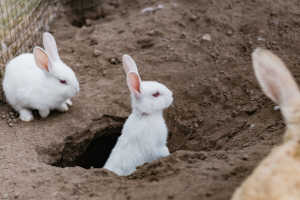
Obsessive Thoughts, Obsessive Thinking, Overthinking, Fixating, Overanalysing Things, Paying Attention To Detail - Can't See The Forest For The Trees Obsessive thoughts are usually troubling, unpleasant ones (or pictures, impulses) that come to mind when we don't want them, whereas compulsions are behaviours we use in order to act upon, or to "put right" the obsessions. We all experience obsessive thoughts (coming from our past or flashing forwards) and accepting them for what they are - just thoughts (maybe magical thinking at times), can help avoid us judging them or acting on them. Yet being preoccupied by the obsessive thinking or images we obsess about can scare us, take us down a rabbit hole, be contaminating, rendering us feeling insecure. Our obsessive thinking can feel incompatible with our values and may be confusing, disgusting, shameful. We may feel guilty having them. We can blame ourself or others. We may be seeking counselling for restlessness, repetitive, obsessive thoughts that can go into overdrive - often familiar themes (repeated neural pathways in our brain) about certain topics, where we end up ruminating, replaying things in our head, over-thinking, making small things big, and our head heavy as we analyse everything, over-complicating things as if there is civil war going on in our head. All this can affect our sense of internal safety. And when we over-think things, this can affect our sleep. When we think too much, we can spook ourselves, tie ourselves (or end up tying others) up in knots. And all this overanalysing, second-guessing can be paralysing for us as if we are compelled, addicted to obsessive thinking (where analysis paralysis can lead to overwhelment, procrastination). Emotionally blocked, some of us may try to intellectualise everything as part of our protective patterns. Others can be so busy concentrating on the details of everything, that we become confused, can lose sight of the bigger picture, become fatigued, anxious, stressed (which in turn can distort our clear thinking), as if we "can't see the wood for the trees". Dissecting of things, fixating, paying attention to detail can be helpful at times, yet we may struggle to let go of this when we need to, when it's not necessary, which may point to our perfectionism, need to control. Our thinking may have become rigid, where things have to be a certain way, and we may struggle to accept our helplessness over others, outcomes. Inside we may feel disappointed, unsatisfied as if things are never enough, and if we are not careful, we can end up feeling like a victim. We may become depressed or hard to be reached. We may struggle to stop obsessing at times, listen and respond to our intuition, gut feelings, emotions, our heart, opening our heart to others and value the bigger picture, what really matters. When our thoughts spiral, we may find it hard to keep things simple, step back from the detail, seeing things on a broader scale. (We may want to ask ourselves what specifically is it that's concerning us, is this a real problem, what can we do about this, are there other ways to think about this, how would we feel if we were to think differently?) Not taking things so seriously, getting out of our head, being in our body, living in the moment, lightening up, rediscovering our sense of fun, playfulness, being able to laugh (or daring to love ourself), may be a challenge for us, as may allowing time for daydreaming, idleness, mindlessness. Challenging our own rationality, switching from our concrete mind to the imaginative mind, transforming unhelpful thoughts with positive ones, utilising a simple anchor ritual (e.g. touching an elastic band on our wrist) can work for some. For others, having perspective, giving ourself a worry-break, can allow clarity to emerge. We may want to give our mind a positive constructive direction - reminding ourselves that our obsessive thoughts (or images), are not impulses or the simple serenity prayer "God, grant me the serenity to accept the things I cannot change, courage to change the things I can, and wisdom to know the difference". This can help us let go, put our worries aside, drop the overthinking, so we focus on what is within our control, alongside exploring the motivation for our obsessive thoughts, or sense of threat. The counselling for obsessive thinking can also explore how it might serve as a distraction from something else we may struggle to face and how we can observe, tolerate, manage our anxiety, life's uncertainties, "what if ...", "could I ...", override our self-doubt, learn to label and name our emotions, reduce, change our obsessive thoughts by counter-intuitively greeting them with compassion, less "mindfull", yet more mindful, so we are more prepared to regularly, gently expose ourself to our challenges, in order to overcome them.

Overwhelmed, Overloaded, Overstimulated When stuck in our head, feeling overwhelmed (maybe fuelled by what we tell ourselves and how we treat ourselves), this puts us under pressure, especially if our self-compassion is in short supply or if procrastination - abandoning ourself organisationally - affects us. Sometimes we can let our spiralling thoughts run away with us as if we have a monkey mind, be hijacked by them, thinking everything, everywhere, all at once. We may feel fragile, on the edge. Struggling to reconcile & prioritise things in our head, we may have competing interests or priorities, an ever expanding "to do" list, maybe trying to do things right, perfectly. And feeling the pressure of time can be a further way we overwhelm ourself. Panic attacks, burnout can result. We can do anything yet can't do everything. We may often get into situations when we have too much to do in the time we have, remaining in a state of overwhelm, fogging our mind (or what has been called brain fog - see also Memory, Brain Fog - Choice In What We Are Willing To Forget & What We Are Willing To Remember), draining us, worrying a lot as our thoughts spiral. It can be as if our mind frazzles, short-circuits. Our avalanche of thoughts can stimulate an avalanche of overwhelming feelings, active imagination which can take us over. We may allow our mind itself to scatter all over the place with overwhelming thoughts, rendering us anxious, complicating things, keeping ourselves permanently busy, especially if we experience ADD/ADHD. And we may feel overwhelmed, because we think we are, telling ourselves this. Keeping things simple at times, focusing on feeling the way we want to feel may help dissipate our thoughts of overwhelment. We may allow small things in our head to escalate into onerous, mountainous things and become fatigued. Our buttons may get easily pressed and we can get caught by our own hooks, triggers. Some may make unrealistic promises or be caught in trying to please others (or seek validation, approval, affirmation, reassurance, confirmation, permission, recognition, appreciation, praise, attention, adoration, admiration), which can backfire. It may be important not to judge, be compassionate & kind to ourselves, so we don't shut down. Anything negatively or positively picked up, generated, will affect our mind some of us may have a sense of impending doom (see also Emotional Reasoning - Feelings Dominating Our Thoughts). Sometimes an aspect of our personality (e.g. our body, mind, feelings, sexuality, spirituality, maybe our desires, needs, memories) or the overwhelming experience of one of our senses - sight, visual stimulation, our hearing, taste, smell, touch, can be overstimulated, overloaded or tiring our mind. We may react impulsively despite our analytical mind. Weighed down, we may struggle to wisely practise self-discipline regarding our thoughts, use our senses, remain centred in our own ground, balance aspects of us. Coming back to our purpose, being focused and our personal boundaries may support containment, alongside slowing down, acknowledging and embracing the realistic limitations of the time we have, learning to balance & have perspective over what's important, urgent, essential, letting go of what we need to - what we no longer need to carry, so we lighten our load, filter our thoughts, no longer deny our Self, make space for us & our daydreams, rediscover or enjoy light-heartedness, playfulness, carefreeness, laughter, fun, pleasure and our sense of humour asking for help when we need to. In the counselling we may explore how in tune we are in our body, what gives us peace of mind.
In order to heal ourselves, we need to get out of our heads and focus on the language of our hearts.Dr. Jeff Rediger
So Much To Do & Having To Do It All Ourselves We may have so many equally important things to do, which are competing to be done, that we may frequently have dilemmas which one to choose. Being clear what we really need to do, letting go of trying so hard to work out which one to choose, may for some open up our intuitive sense & feelings, where somewhere inside we tend to know which needs attention first. Trusting this process may help us relax. We may also believe we have to do everything ourself or have unreasonable work expectations, which means we will always be busy doing everything as if we have to always keep busy through distractions. Our challenge may be to be less busy, yet more efficient. We may not find it easy to receive the cooperation from others or may struggle to invest in developing others' help or skills, so we can let go and trust. Stepping out of any martyr role, asking for what we need (including in our relationship) may be important. And enlisting the help of supportive others, trusting others to do things right may be a further challenge as may encouraging others to choose tasks to take on and where this is not possible, to match the person to the task - being clear about when, what & how to let others use their own initiative & creativity.


Confusion & Bewilderment Our interpretations can be deceptive and our "reality" can be inaccurate (for example we see the Sun moving each day, yet it is the Earth moving around the Sun). The lens we see things through can be confusing, bewildering for some, especially if we over-think. Seeking clarity, we may want to rewire the way we think, where things may be tangled up in our head and we may have a lot of clutter in our life. Some of us may be confused, because we become anxious or have so many options, choices, roles and identities, too much information and need to sharpen our focus, just as a photographer decides what & where to readjust or focus their lens on, what really matters, discounting what doesn't. We may remain confused, overwhelmed by the overall picture and all its details, unless we select to put the spotlight of our focus on one particular subject or thing. We may also be confused about who we are because we feel lost, stuck, seeking direction, be overwhelmed with doubt, irrelevant thoughts, and struggle with life's paradoxes, contradictions, conflicts, contrasts, dilemmas, ambivalence or being in the moment. Bewildered, we may want to untangle some of our thoughts, straighten them out (especially for those of us who are highly sensitive, HSP) or experience dyslexia, dyspraxia, ADHD/ADD. Adjusting & cleaning our lens may shift our perception, attitude. (Maybe our confusion is more about disturbance or chaos, which may have its roots.) If we are confused or unsure about making a decision we can ask ourselves "Who am I?", "What is my purpose?", "What is my intention?". Connecting to our responses lead us towards clarity. The therapy can be a space to help unravel the things we want to unravel, observe our thoughts, bewilderment, help us unpack confusion by thinking differently, giving us better understanding, learning what we need to learn, coming from the place of simplicity, clarifying what we want to clarify and find solutions.

Our Inner World, Living In Our Head - Stuck In Our Head? Some of us may struggle what to do with all the thoughts that we form, especially those niggling thoughts, which then multiply into a web of thoughts. Untangling ourselves from being caught in our own web of thoughts, loosening their grip may help us. As if we have a monkey mind, our thoughts may tie ourself in knots, juggle around in our head. We may dwell on them, ruminate in ways which aren't helpful. Even as we walk, we may lead from our head. Living in our head, over-analysing things, some of our thoughts may become a continuous stream as if they go around in a continuous loop - at times resulting in exhaustion. We may have allowed our thoughts to overwhelm us and need our internal boundaries. When stuck in our head for some time, we may have bottled up, frozen our feelings, procrastinate or feel low, depressed. Overriding our intuition, gut feelings, instinct, sense of personal empowerment, we may be busy rationalising our feelings away, needing to know everything, worrying & fixating on things, finding it hard to switch off, or driven by our obligations, internal rules. When in our rational mind, spontaneity, surprises, may be absent. This turbulence in our head may go back a while. Only logic may rule us. (We may be so stuck in our head that it can be as if there is no other world out there or inside us). Over-thinking can be our way to ignore our inner child, bypass our feelings (including our vulnerability, tenderness), bear any suffering or open our heart. (And when our head and heart are aligned we can sense, speak our home truth.) Neglecting understanding, through the emotional knowledge of feeling, we may have emotionally abandoned ourself and the rest of our body (see also Re-Connecting To Who We Are, Being Grounded & Secure, Inhabiting Our Body, Standing Up For Ourself). Emotionally blocked, we may want to connect to our vitality and restore the balance on the same axis between our head and heart, allow our thoughts to be experienced in our mind so we feel them, feeling our feelings, so we no longer internalise them. This may help us get out of the one-tracked need for the knowledge of our mind, so we can also feel the emotional experiences of our body, being in tune with our desires, passions. (When it comes to our sexual life, we may also remain stuck in our head - out of tune with these desires the energy of love, inhibiting our sexual energy.) Especially if we're trying to be an overly nice person, playing the nice guy, in our introspection we may have forgotten how to be in the moment, joy, openness to our light-heartedness, playfulness, carefreeness, laughter, fun and our sense of humour. What we think & believe to be possible, contributes to how we feel. And because how we think affects our "inner world" and our responses, counselling & psychotherapy can examine the wisdom of holding on to unhelpful, irrational, distorted, fear-based thoughts or beliefs, and ways in which we can create different thoughts & meanings in our life, so our anxious mind is not so fear driven and is less noisy in our head without scenarios running around in it or internal power struggles. We may want to live a less binary life, and a more textured, enriched life, focusing less on the details and more on the big picture. Allowing ourself to be touched through our experiences, including joy, openness to our light-heartedness, playfulness, carefreeness, laughter, fun & our sense of humour, be content, have peace of mind, sensing our senses may be important to us, experiencing our experiences and feelings (so "the map is not the territory" - Alfred Korzybski), and we can choose to respond differently to our thoughts, manage them.
An intelligent person is never afraid or ashamed to find errors in his understanding of things.Bryant McGill

Our logical side & taking things literally, supported by our critical thinking, may be important, helpful and valued. (Douglas Adams once wrote "If it looks like a duck, swims like a duck, and quacks like a duck, then it probably is a duck.") Yet putting so much emphasis on the logical part of us, we may have neglected the emotional aspect of us or be out of touch with the physical feelings in our body. Notwithstanding our quirks, peculiarities , illogical side " mad, crazy moments" or "mental wobbles", balancing our rational mind, logical side and being in our head alongside the rest of ourselves may be important, so our body, mind and feelings feel interconnected. Staying in our head we may have abandoned ourself, our own psychological journey including our emotional and physical experiences. Thinking may come easy to us, as may our personal logic and version of reality, taking everything literally, whereas experiencing our self, being in the moment, authentic & real, honest, centred, solid, fully grounded, inhabiting our body, in touch with our vitality may not come as easy. We may ignore our unconscious aspects, living in our head as if we are just a conscious brain, always trying to work things out, maybe having all or nothing thinking, closing off, shutting down, bottling things up. We may have de-valued or neglected all of who we are, from our head downwards - our body, senses, intuition, our energy, feelings, insights, imagination and creativity, sexuality, maybe our spirituality and the heart & soul of who we are. Caught up in our thoughts, mind, things may have become crowded, chaotic at times, when our awareness becomes centred in our head, as if when talking, moving, we steer from this place, leading from our head, as the rest of our body follows. We may have begun to take ourselves so seriously, that we struggle to relax into ourself (see also Peace Of Mind, Stilling Our Mind, Contentment, Inner Peace, Internal Calmness - What May Help), be light-hearted and playful, which may go a long way back. Accessing our emotions & vulnerability (without seeing them as a weakness), being able to empathise, opening and listening to our heart, so we are less confused and are able to do things, may be our challenge, as may accepting not knowing and uncertainty, life's predicaments (as Karl Jaspers stated, "Every truth that we may think complete will prove itself untruth at the moment of shipwreck"). When we acknowledge love, the unknown, consciousness this may support us. Being emotionally connected in our relationship may also be important. (See also Integrative Counselling Approach - Holistic Counselling)
Logic will get you from A to B. Imagination will take you everywhere.Albert Einstein
Our Mind Like A Room, The Room In Our Mind We may want to consider our mind as a room, whether we clutter it (e.g. ingesting 24 hour news, as opposed to taking in life affirming energies), what emotions are hanging on the wall, are the curtains, blinds or windows open (see also Keeping An Open Mind) or closed, how bright, spacious, comfortable and creative is our room.
The intuitive mind is a sacred gift and the rational mind is a faithful servant.Albert Einstein
Rationality, Irrationality Some irrationalities (see also Unconscious Reactions) are common to most of us. On some occasions our irrationality, although counter-intuitive, may help us, yet often not (see also Magical Beliefs). Our rational mind helps us work things out logically, make sense of things & decisions, based on facts and reason - see also Our View Of "Reality", "Facts", "Statistics", "Numbers" & Confirmation Bias. (Yet when rationalising things we may be stuck in our head and also hold some limiting beliefs, fixed beliefs, be caught by old hooks.) Some of us may find it hard to rationalise (and we can be over-influenced by our internal dialogue or using our rationalisations to prop up our beliefs). However, we may not take into consideration our principles and experience, our sentience and "felt sense" - to perceive, experience subjectivity, feelings (see also Overwhelmed By Feelings - Managing, Balancing, Overseeing & Transmuting Our Emotions) and senses. The rational mind cannot process death, love, God, spirituality, suffering. Acknowledging love, the unknown, consciousness may counter-intuitively support us. We may undervalue the qualities of our senses, imagination and creativity, sexuality, maybe our spirituality. We may try to rationalise everything, without acknowledging suffering and love, desire, death, mystery, intuition, consciousness, memory, our sources of motivation - some of them unconscious, and connection between our past, present, future.

Emotional Reasoning - Feelings Dominating Our Thoughts Much of our thinking is driven by our feelings, and the reverse is also true. We experience our thoughts through our emotions as feelings (e.g. an angry thought produces and angry feeling, a shameful thought produces a shameful feeling). Our thoughts and active imagination therefore carry an emotional charge, creating chemical which make us feel as if we become our emotions - that this is who we are ("I feel stupid so I must be"). How we think affects our moods and our moods affect how we think. We may struggle to find a calm, reflective space inside of us to embrace our thoughts. If we view the contents of our mind as frightening, then we may activate our fight, flight or freeze response, as our thoughts tumble even further. The feelings we are experiencing may endure (and we may overshare our feelings) yet our thoughts may pass in different moments. Psychotherapy or counselling can help reduce or manage the impact of powerful emotions, like fear, anxiety and anger, impending doom, so we are able to think more clearly. Some of us may want to move away from fear-based, shame-based thoughts. (See also Overwhelmed By Feelings - Managing, Balancing, Overseeing & Transmuting Our Emotions)
Beliefs & What We Tell Ourselves
Tension is who you think you should be. Relaxation is who you are.Chinese Proverb
Self-beliefs & Believing In Ourself (See also Finding Our Way Through Difficulties & Old Beliefs) Our belief systems, the thoughts we keep practising - about us and the world, influence us, our identity and the decisions we make (see also Mind Reading - Jumping To Conclusions, Fortune Telling, Believing Our Beliefs). Alongside the impact of our own unconscious, we may be holding onto some pre-existing, unhelpful self-beliefs about who we are. At times we have all called upon our unhelpful rationalisations - even speculations, to prop up our belief systems. This may include our limiting beliefs, fixed beliefs or being caught by old hooks. Our internal working model, personal templates, prejudices, biases, desires, principles, hopes, values, perceptions & attitude may also influence our self-beliefs and help form our ethical, moral code, supported by our integrity (see also Believing In Ourselves). The attributions we have given to us (or have inherited from our family), inform our "internal environment", and our sense of who we are and the therapy can explore this further. Many of our beliefs about ourselves & the world originate from childhood (some beliefs may come from our wounded place) - often our "shoulds", "shouldn'ts", "oughts", "musts" affecting our interactions (e.g. "I should..., therefore...", "I can only be happy if..."). We all create expectations, disappointments, assumptions, meanings and conclusions. Some of these beliefs, especially the ones we hold as precious may not help our sense of safety. They may be restrictive or unhelpfully define all of who we are now. We may also have other beliefs like "If I have more money, or a better job, I'll be fine", "If I try hard, I will be rewarded", "Things should be perfect", "I'm missing out on things". Believing in ourselves, in who we are, may matter to us. Counselling & psychotherapy can help us discover our life scripts, any false beliefs, how we construct our thoughts, what we don't need to take personally, what beliefs we can let go of, any new ones that may be emerging, which fit closer to who we are, so we can view our thoughts, perceptions & attitude more objectively, bring them up to date and practise supportive affirmation (e.g. "I am capable"). We may be holding on to unhelpful beliefs about ourselves, which may need transforming:
- Others should love us to make up for what we didn't receive as a child
- We are not capable or worth having love for us, that others have to love us to prove our own self-worth
- We can't forgive (us or others)
- The care we receive from others means more than caring for ourselves
- Believing we are not good enough
If you must tell me your opinions, tell me what you believe in. I have plenty of doubts of my own.Johann Wolfgang Von Goethe

Unhelpful, Redundant, Inhibiting Rules, Loyalties, Oaths, Sacred Cows, Obligations, Duties, Taboos, Cultural Conventions Linked to our morality, the loyalties, oaths, and sacred cows we have & hold can be very important and close to us, many of them non-negotiable. We all have duties. Accepting our duties and obligations can be challenging. Infusing duty, calls of duty with love can enhance what we do, how we are. A call of duty can bring us responsibility, sense of purpose and dedication if it genuinely feels right for us (see also The Gift Of Intuition & Inner Knowing - Gut Feelings, Hunches, Instinct, Improvising), linked to our home truths, including our engagement, creativity, satisfaction. However, without these personal qualities we may have a sense of obligation, which may not sit easy with us. Valuing certain cultural conventions and discarding others, we may be holding on to old habits, confirmation biases that now limit our growth. We may have made often unspoken promises to ourselves (or others), decided certain things are sacrosanct (see also Rigid, Fixed Beliefs Written In Stone), and continue to hold on to old roles, fixed identifications (e.g. our people pleaser, codependent self, self-sacrificing in our relationship). These may now limit us, affecting our up to date beliefs of who we are, especially if we hold on to fear based truths, which can keep us stuck, stopping us & others flourishing, engaging with thoughts that empower us, affecting trust in our relationship. Maybe unconnected to our morality, some of these rules, loyalties, oaths, duties and sacred cows may be linked to early unconscious agreements, beliefs we made to ourselves. They (alongside our fatalistic beliefs) may now be draining, hard to shake off, become inhibiting like a straightjacket, restrict us, limit our beliefs. Sometimes our sense of duty, loyalty can be misplaced or we follow a sort of blind loyalty without us consciously choosing them (see also The "Should", "Shouldn't", "Ought", "Must", "Never", "Always" Beliefs). With a tight grip, we may be blindly loyal to old beliefs from our past, which we have yet to challenge and some of these may be misused, abused, or simply be no longer relevant. For some of us there may be family rifts, where our personal integrity, honesty can be compromised. We may for example be holding on to bonds of family loyalty or based on painful experiences we've previously had, loyalty at all costs, even to our very Self and others, which no longer serve us (see also Not Wanting To Let People Down - Fear Of Disappointing, Hurting, Upsetting Or Annoying Others, Our Partner). We may have swallowed, introjected ideas, beliefs from elsewhere, maybe taking on our parents' ideas, beliefs, values, attitudes (or that of social media) - unconsciously (or consciously) internalising these introjections as our own. Some of our sacred cows, oaths, duties may be more about our fear, and yet be unhelpful or redundant now. Maybe feeling burdened, some of us may be obliged to think, feel, make choices and decisions, behave in certain ways, do things, which can build up resentment. We may feel like a victim or martyr at times, have become loyal to externally imposed structures (or internal ones, e.g. unconscious "inherited" beliefs, behaviours, stress, fears, anxieties from one of our parents that we have taken in as if ours), yet want to break certain taboos seek our own path now, shifting obligations to options - even for the things we feel obliged to do, being in touch with the healthy side of being selfish, our own softness, free will, self-compassion, so we are ultimately loyal to our self. (As the Dalai Lama remarked, "Learn and obey the rules very well, so you will know how to break them properly".) However, before we throw any rules out, we need to struggle with them - come up against the external values and how they sit with our own internalised values, instincts. (As Richard Rohr writes "We all must leave home to find a real and larger home, which is so important. The nuclear family has far too often been the enemy of the global family and mature, spiritual seeking.") We may no longer want to conform for its own sake, seek validation, approval from others, so we remain in our own inner authority.
Be realistic, demand the impossible.Che Guevara

Rigid, Fixed Beliefs Written In Stone Some of our thoughts & beliefs can get ingrained, embedded in us - almost institutionalised, entrenched, as if things are written in stone in our head, affecting the conclusions we draw (see also Unhelpful, Redundant, Inhibiting Rules, Loyalties, Oaths, Sacred Cows, Obligations, Duties, Taboos, Cultural Conventions), the quality of our free will. We may for example believe that we should know everything (see Fear Of Not Knowing (FONK Counselling) Tolerating Not Knowing - Our Need To Be In Control, Agnosiophobia Counselling). Others may deny any value or meaningfulness of life, believing that nothing really matters. We may hold fixed, rigid beliefs, all-or-nothing thinking (see also Unhelpful Self-Beliefs Related To Our Esteem). We may also want to balance being focused when we need to be, clear about what matters to us, our priorities, where we want to go, yet simultaneously be flexible enough to let go of what we think should happen, so we adapt and adjust along the way. What new different thoughts will we choose? (See also Flexible Thinking, Cognitive Flexibility) And this approach can help us overcome having overly rigid boundaries believing it is weak to change our mind or be soft. Our beliefs are powerful, yet we don't have to believe everything we believe. (There is a James O'Brien quote "There is no point of having a mind if you never change it".) And, it is often through open-hearted human connection, that helps mind's change. Allowing for the mystery of life, being curious, challenging the negative or untrue beliefs we have of ourself, others, the world, making them positive and empowering can support us (see also Reframing, Limiting Beliefs, Mindsets). Counselling and psychotherapy helps to pinpoint what beliefs and boundaries are fixed, over-rigid and which ones are fluid & flexible, any redundant beliefs (the ones we are willing to let go of) and how our values, conscience, integrity & principles, the nature of our free will impact upon our beliefs.
We are entitled to change our mind at any time.
Scenarios Creating scenarios based on repetition compulsion, our old triggers, our narratives or what others think about ourself, overly worrying inside, our relating state, may inhibit us. We may make up stories, fantasies in our head, imagining what might happen, or we'd like (or not like) to happen (see also Background/Foreground Thoughts, Our Self-Talk, What We Tell Ourselves, Internal Dialogue - Choosing What We Think). Our scenarios may carry our personal narratives, scripts, fantasies, anticipations, fears, worries, hopes, influencing what we believe or would like to believe, often based on our script and we can also enter into a drama in our relationship (see also Drama Triangle of Victim, Rescuer, Persecutor), taking on different roles (see also Our Free Will, Free Spirit).
Mind Reading - Jumping To Conclusions, Fortune Telling, Believing Our Beliefs Our self-beliefs influence the conclusions we draw, how we think and the thoughts we keep practising turn into beliefs. We may worry to stop bad things happening or assume others are negatively reacting to us without much evidence. (These can also be influenced when we are hungry, tired, irritable, angry, lonely, unwell, hungover, cold, hormonal, under threat, traumatised or in crisis, in conflict, ashamed, holding grief, loss, feeling lost or stuck, guilt or shame.) Our self-beliefs may also include our self-doubt. We can have many beliefs, draw many conclusions, including:
- Our childhood was so good, that it is not matched now, or that it was so bad, therefore it always will be
- Because we feel wronged it doesn't mean that someone out there wronged us
- Other beliefs
Fantasies - Fantasy Thinking We become what we believe. Our fantasies can carry our fears, hopes, wishes, desires & ideas. They can help us strive for the best, perfection, help us achieve things. Fantasies have the potential to propel us towards what they point us to. Yet our unrealistic fantasies allow us to get carried away with them, holding onto our fantasised ideas at all costs, despite evidence to the contrary or reality as it is (see also Magical Thinking). Lying may be a habit. We may be living from a fantasised place, rather than how it actually is and this can be also true in our relationship, where we may have a fantasy of how love should be or what we want to believe, maybe searching for our idealised partner, or the perfect relationship, marriage. (See also Sexual Imagination, Fantasies, Daydreaming)
Wishful Thinking Some of us can have harmless moments of wishful thinking, daydreaming, which passes or leads to positive change. Others can unhelpfully get stuck with unfulfilled wishes - "I wish I did this, had done that", not leading anywhere, and this may indicate a need to mobilise our resources and act.

Magical Beliefs For some of us our magical beliefs, daydreaming may have been a familiar safe place to go to when younger and the jewels of our magical thinking may also be of creative benefit. Most of us have developed magical thinking at times, especially when younger - sometimes believing our fantasies. We may also believe we were wrong, bad, responsible for events outside of our control, as if believing we can entirely influence outcomes (despite evidence to the contrary) - that if we do that - this will happen, when in reality these beliefs may be more like distorted thoughts, superstitions or based on taking in literally & following what we were told. Sometimes we can have irrational fears based on our magical thinking, that we cause things outside of our control to happen. We may catastrophise or awfulise. We can also hold magical beliefs way back in childhood, that certain behaviours, gestures or words can change reality. People who influenced us may have made remarks, often in jest or throw away comments (e.g. that we are somehow made responsible for making others feel the way they do). Some things said may have been serious statements which we believed as fact or reality, that we caused events, whereas there may be other influences. The effects of these messages (and the false causation we put onto them) can live on now, instructing, informing our life in restrictive ways. Despite our maturity, some of us may continue to hold on to some childish magical thinking, other times we may simply hold hope. An example of our magical thinking can be believing or hoping that if we do something, that something unrelated happens or that all of fine and it is grace that will take care of us, without any action on our part, we can just be passive. Another example is convincing ourself we always have enough time, yet being continuously late for things. Recognised hopeful thinking may include: crossing our fingers, touching wood, wearing a certain lucky item of clothing in order to ensure that something else, unrelated happens. Some may turn their magical thinking or bothersome thoughts into obsessiveness or compulsiveness. Others, as if coming from their wounded-self or inner child, can turn experiences, or what they are told, into universal truths as if there are no exceptions, alternative ways of seeing things, for this may affect our beliefs about perfectionism, the perfect relationship, our religious beliefs, sense of the spiritual. Often our magical beliefs start off with "If only", e.g. "If I only had enough money or find the right man or woman, I would be OK". These magical thoughts or beliefs can act as a form of self sabotage, be restricting & distract us from fully living how we want to in each moment. Accepting some things as they actually are, yet valuing the magical in our lives, may be challenging.
If it looks like a duck, swims like a duck, and quacks like a duck, then it probably is a duck.Douglas Adams

Magical Thinking The mind is a powerful instrument and we can't easily place the rational side of things in one distinct box and the irrational into another, maybe daydreaming & fantasising. The influence & power of our hopes, aspirations, imagination, cultural background, beliefs, faith (prayer, meditation for some) is enormous. Sometimes coincidences happen as things come together. And at one level everything is connected, which can support our magical thinking. Yet at times we may falsely link causation to suit our personal logic - "if we hadn't done this, that wouldn't have happened". Cause, effect, habits, taboos, rituals, life scripts can form most of our lives. Religious & spiritual practices have important & valued rituals too. However, certain rituals, taboos, sacrifices, magical thinking may be based on superstition, scapegoating, fear, manipulation, the absence of love or irrational thinking. Discerning between the areas of intuition, science, religion, spirituality, personal beliefs & experiences, even alchemy is challenging. Some of us can hold on to what is termed magical thinking - believing there is only one correlation (our own logic or beliefs, or those beliefs we've taken on from others as if they are our own) between our actions influencing the outcome, yet other factors, including irrelevant thoughts, may not have been considered. (Another magical belief may be if we worry enough it will stop bad things happening.) Fortune telling, we may also try to mind read, jump to conclusions. Many of us were brought up on myths, legends, fairytales, pointing to symbolic meanings & important messages, some of them with magical beliefs, which we may have taken literally.
I am a lover of what is, not because I'm a spiritual person, but because it hurts when I argue with reality.Byron Katie
False Beliefs False beliefs and thoughts that make us feel bad (see also Unhelpful Self-Beliefs Related To Our Esteem), can sap our energy (see also Self-beliefs & Believing In Ourself) and affects the weighting we put on things. Being in touch with our home truths can make us feel good, energised (see also Truth, Knowledge & Knowing Things).
We do the best we can with what we know, and when we know better, we do better.Maya Angelou

Truth, Knowledge & Knowing Things The definition of truth is not fixed or agreed, often partial and multifaceted and dependent on subjectivity, rules, dogma, culture and tribes who may state their truth is the only truth. The impact of AI can also cloud what truth is. Truth is an experience and also relational. There can be a difference between what we believe, what we know and what we fear. Although knowledge is information, it is also personally sensed, known in our body, bones, heart. The role of intuition, our inner knowing, gut feelings, our conscience & personal integrity may also be included in the therapy, alongside the attitudes we hold & actions we take through our wisdom (there is a difference between knowledge and wisdom). We all have are our own versions of truth (in which we can search for things to support our self-beliefs), our internal dialogue & limiting beliefs at times, some of which may support our relationship style. What we presume to be factual and reality can widely vary and this can be related to our introjects - unconsciously (or consciously) taking on our parents' ideas, beliefs, values, attitudes, internalising these as our own (alongside the influence of social media). We may want to utilise the therapy to explore our own rationalisations. Some of us can know things through education, books, TV, internet, experts, etc., through an intellectual way, being in our head, as if facts are the only truth, maybe at a cost of our emotional depth, intimacy, open-heartedness or difficulties in creating space, quiet time, taking pauses, observing & reflecting. Some may struggle in living with the unknown, where much of our knowledge, truth, may be unconsciously hidden, which may emerge through the therapy interactions. We may also want to trust our own experience, which brings our knowing, utilising all our senses, explore what truth is for us right now (without being attached to being right & without so called fear-based truths) and what it means to be truthful & honest in our relationship. In seeking truth we may want to filter apparent truth from real truth, being discerning, avoid sensationalism, be tolerant, notice the herd mentality of tribes and be confident to change our mind in order to be non-judgemental, authentic. Knowledge is of the mind yet we may have ignored our emotional experiences - located in the body. Letting go of things can paradoxically take us closer to truth. And when we are on a path of knowledge, in touch with truth, clearness, clarity, we may feel good, have more energy and for some this may point towards a spiritual path. (see also Our Home Truths)
The mind is like an iceberg, it floats with one-seventh of its bulk above water.Sigmund Freud

Our View Of "Reality", "Facts", "Statistics", "Numbers" & Confirmation Bias Often "reality", "facts", "statistics", "reason" are conflictual. Sometimes, supported by our own introjects, confirmation bias (favouring information that confirms our previous, existing beliefs or biases - for we all trade in "numbers", "facts", "statistics" - often ones that suit us, cherry-picking statistics), may be making our opinions fact. We create our own relative reality unique to us (a key principle of quantum physics is that thoughts determine our reality). Therefore we can't always understand other people's reality (yet we can find common ground - see also Agreeing To Disagree). AI can also create its own version of "reality". People and situations may not change, yet how we view them may. How we see reality - what is, can be viewed through a combination of our perception & thoughts, and when these change, so too may the reality which appears before us (see also Background/Foreground Thoughts, Our Self-Talk, What We Tell Ourselves, Internal Dialogue - Choosing What We Think). Our ideas can also shape our reality. Influenced by the lens we see things from, our perceptions can be deceptive, that our "reality" can be interpretation (for example we see the Sun moving each day, yet it is the Earth moving around the Sun). Struggling to accept uncertainty, the unknown, the future, we can respond to our thoughts, beliefs, public opinions as if true (it was Mark Twain, who commented, "Its name is Public Opinion. It is held in reverence. It settles everything. Some think it is the voice of God"). Our reality may also be shaped by the facts around us, yet so called "facts" too can be distorted and misleading (as Angela Madden "People want to quote their own figures when they want to make a certain point"). Whether we see things from the inside or on the outside, are in touch with other sides we haven't thought of may also influence our sense of reality (see also Our Perspective). How we mentalise things, what we believe, the weighting we put on to things can also shape our view of reality. We may also want to have reality checks to support our perceptions. Exploring our rationality, sense of truth & knowledge, any all or nothing thinking may be important and we may feel better, more energised inside when we discard our false beliefs and are in touch with our own truth as we keep an open mind, be curious, attempt to see things as they actually are, without a narrative. Mindfulness can support us in gaining insights into the nature of reality. Seeing and facing reality as it actually is, is not always easy and may also call upon our state of grace. We all have different "realities". Utilising our critical thinking, we may want to check our realities and distortions through our interactions with others, our belief systems, relationship style, how grounded and in the moment we are, whether we are in tune with our intuition & senses (including what we see & feel, don't want to see & feel). Being as neutral as we can be, using our observational skills a realist - seeing things as they accurately are, may be important to us yet we may also want to include our vision, imagining, creating our future, so our vision and hope also become reality. Sometimes in certain elevated moods moments, our sense of time & reality shift, as if something else is transforming in our life, we can experience advanced forms of reality through guidance or peak experiences. The therapy can be an avenue to explore further these influences alongside how we see the world, our home truths, unconscious, mystery and not knowing, and how our experience of reality may be found at the core of our being, consciousness. Some may also want to explore (or have experienced) a transcendent level of reality - what has been called the psyche, ultimate reality or absolute reality (with what has been described as one single boundless field - in the absence of the illusion of separation, where all that exists is energy, vibrational patterns, frequency. And these different frequencies can represent different states of consciousness, all simultaneously existing in an ever-present "now", in space and time, where everything exists simultaneously, aligned with aspects of quantum mechanics and mystic traditions, where the illusion of form and solidity of matter is less concrete and seen as vibrating energy. This may also lead us to a sense of time transcending, exploring reality as not just a physical structure but also as a living, conscious field of energy (scientists call this the unified field, where true separation can be viewed as impossible).
There are three kinds of lies: lies, damned lies, and statistics.Mark Twain
One man's ceiling is another man's floor.Paul Simon

Our Assumptions & Interpretations Sometimes we can hold on to our confirmation bias - that events confirm our existing beliefs. We may select people, who share our beliefs, and so confirm our assumptions, which may be unhelpful or inaccurate at times (see also How We See The World). It can be a learning process at times to be with people who challenge our assumptions when they need to. We may find people difficult simply because they are different to us. We all make assumptions, it can be hard not to and keep an open mind (see also Reframing, Limiting Beliefs, Mindsets). Some of our interpretations may have their origins in childhood. We may want to hold our assumptions, interpretations lightly, especially those initial ones, which can be the basis of forming false beliefs. Double checking our perspectives can assist. Our assumptions can be based on lack of experience, choosing an easy path. The assumptions we have about people or things are only our beliefs without actually knowing them to be true and we can respond to these thoughts as if true. Some of us may use our assumptions, versions, as facts or reality, supporting our decisions. Being curious and taking time to find out facts and responding in way that give the benefit of the doubt, without thinking the worst, can assist us. We may automatically do things that we believe are right, rather than listening to our self, knowing what we actually want, following our own path. This too can be looked at in the therapy. Because of the stories, fantasies, depth of imagination and emotions triggered, many of the situations we evaluate, including of other people & us, has little to do with what is actually happening, as if we are living from some sort of script.
Keeping An Open Mind We may be convinced we've got something figured out, that we know it, and don't need to know any more. At this point we may have a closed mind, be no longer open to new ideas, perspectives, losing our humility along the way. Others may be quick in making assumptions, rushing in, closing our mind. It can be challenging to keep our mind open, learn, understand things better, yet at the same time stand by our truths, without necessarily accepting every point of view. Being curious, open to other possibilities, willing to reconsider, revise our assumptions can support our open-mindedness, change our view of reality, as may keeping our heart open, letting go of what we need to.
A mind is like a parachute. It doesn't work if it is not open.Frank Zappa

Observing, Labelling, Naming Our Thoughts - Thoughtfulness Ruminating is different to being thoughtful. We may want to consider being thoughtful - preparing our mind before we carry out tasks, reflecting on what feelings we want to bring on to situations. Responding to our thoughts, filtering, challenging, being mindful of them in different ways may at times help us as may not taking all our thoughts at face value or as truth (some of us may blame ourself for things we are not responsible for). Getting to know the type of thought we are having (including any irrelevant thoughts) and naming them - whether it is a judgement (e.g. "I'm a loser because I made a mistake"), a memory or evaluation, without necessarily lingering on them, can support and anchor us, so we don't have to jump on any train of thoughts, which leads us to destinations we don't want to end up in. Noticing feelings which come directly from our thoughts - which thoughts create fear, depression, anxiety, anger and which thoughts create lightness, peace, joy, can help us learn to take charge of our thoughts. Like a train, if our thoughts stray in a wrong destination (or are unwanted), we can get off the train and catch the next train of thought, going in our chosen direction (or envision an undiscovered location). For some of us our train of thoughts can whizz ahead, as if the other carriages are not very connected. When we give space to our thoughts through our awareness, get off our train of thoughts, watch on the platform all those trains come and go, arrive and depart, this can give us perspective as we mentalise, connect to our inner direction.
The primary cause of unhappiness is never the situation but thought about it.Eckhart Tolle

Over-Talking, Floodlighting, Oversharing - Balance Between Withholding Or Sharing All Our Thoughts There is a lot in-between the two extremes of withholding or saying everything. Some of us may withhold our thoughts, be extremely guarded, cautious, holding back what we say, struggling to be open and especially in our relationship - see also Strengthening Relationship Communication - How We Relate, withdrawing and withholding which can take us further away from emotional honesty or giving feedback to others, being truthful and emotionally honest in our relationship, which on the other hand, can be misinterpreted as criticism, being unsupportive. Whereas others may do the opposite - need to say everything on our mind, which can have an effect of floodlighting others. We may want to give them opportunities to respond, leave space to speak a bit more. This can also help build rapport. Self-control, emotional resilience, managing our internal dialogue, taking into consideration the impact of what we say especially in our relationship may be a concern for some especially if we overtalk, blurt out our stream of consciousness, tend to exaggerate, over-emphasise, accentuate or hold lots of nervous energy, have certain considerations, e.g. ADD/ADHD. And sometimes speaking all our truth, in every moment can destroy relationships. We can share too much, resulting in pushing others away. We all have private lives and free speech doesn't mean we have to brainstorm others, let all our thoughts, opinions, experiences spill out, say everything and this relating state can be too much for us and others at times (maybe through texting, emailing, social media, online chat, internet communication) - see also Boundary Setting Counselling - Loose, Porous Or Uncontained Boundaries. Believing that being true to ourself means we have to share all our thoughts, every moment, may not always help us. "Do we have to tell everything - all our feelings and thoughts?" may be a question we hold (see also Over-Talking, Oversharing, Floodlighting - Whether Or Not To Share Our Feelings). If online, sometimes the simple use of emojis ☺ may be more effective. Fear of missing out (FOMO) can be a reason we brainstorm others. Over-explaining and justifying ourselves (especially if we feel wronged or judged) can happen and others may feel saturated, railroaded (see also Impact Of Language, What We Say, The Words We Use). How we keep communication safe and our personal boundaries can support us not having to share too much, so we don't feel threatened by always saying what's on our mind, containing what we need to contain, trusting ourself. Living in the moment with awareness, reflection we may at times also want to catch ourself before we speak, catching any irrelevant thoughts, centring ourself, because we are aware of others' feelings, so we don't go down roads we don't need to go down, regret or feel guilty for what we've said. Each conversation may call upon us to be clear about what is appropriate to share, and what isn't (see also Counselling For Setting Boundaries & Parameters). We may share more than we should when we are too comfortable, nervous, or eager to make good impressions or fear invasion, and may need to recognise what's appropriate to share and what's not. And when take a pause for a moment, speak to our mind, ask our mind what is helpful, necessary and kind, we may have more clarity as we filter our thoughts, don't over-share, this can support our self-esteem. Adapting to situations, being congruent, knowing our truth, distinguishing between what's secret, what's private, choosing to speak our truth (without the necessity for always having to justify ourselves or search for validation, approval, affirmation, reassurance, confirmation, permission, recognition, appreciation, praise, attention, adoration, admiration, acceptance), being emotionally honest, gentle, warm and respectful with a tactful approach may be important for us. (See also What We, Others Observe - Giving, Receiving Feedback To & From Others, Our Partner)
The said can't be unsaid.


Our Triggers We have little control over external triggers (see also Control - Trying To Control Others, Situations, Circumstances, Outcomes), yet we do over our internal triggers. When we are hungry, cold, tired, lonely we can become easily triggered. Hand on heart, all of us can get worked up about certain things (when something happens and brings out disproportionately strong emotions, maybe blowing up small problems out of proportion): other people, situations, disrespect, being unheard, misunderstood, manipulated, injustice, change, experiences, what we tell ourselves, our own anxious worries, memories, overwhelming thoughts, beliefs, feelings and what we make of things (e.g. disappointment). One feeling may trigger another, e.g. we may feel love, then fear. Even a look, a word, a mannerism or nuance in someone can become triggers, as may a certain sound, smell, taste and it can be as if we sometimes get caught in our own drama with our own script. Our triggers (usually picked up somatically through our physical feelings - see also Our Painbody) can be experienced as warning signs, indicators of stress. These bees in our bonnet - our triggers (the stimulus followed by arousal) can magnify our stress, becoming false alarms in our head, and may relate back in time (remembered feelings - even unconsciously) linked to origins of fear or terror, traumas, heartbreak, deep loneliness, grief, or feeling crushed. When we are in real and present danger, our fight, flight, freeze response is vitally important, yet it is not a healthy response when we are triggered yet not in danger. And some of these triggers, hooks can be set off unconsciously (including our build-up to them) and things can have their own momentum as if we are acting out our own script with rehearsed scenarios. This may be especially true of what triggers our unhelpful habits, addictions. Our thoughts & emotions, e.g. insecurity, may trigger further thoughts and associated feelings (e.g. low self-esteem, confidence, stress, fear, anxiety, anger). Struggling to manage these at times we may become over-defensive, as our protective patterns kick in. Over-sensitive at times, our buttons can get pressed. We all have things which are particularly stressful for us and have our personal habit triggers (some of them reactive, as if coming from nowhere), and ways of responding, e.g. attacking, blaming, withdrawing, going numb, getting angry or turning to addictive triggers, etc. On a mission we can feel compelled to impulsively or compulsively act, yet we may not be very free. Our triggered reactions now tend to originate from our history, often linked to situations or thoughts which triggered our original trauma, as if our unhealed wounds from our past catch up with us in certain situations, setting off a chain of events. A response to our triggers may be trying to control others, outcomes. We may become judgemental or critical of ourself for having these triggers, struggling to accept any fears, terrors behind any of our protective reactions. Our self-compassion may be in short supply, as may choosing what we are willing to forget and what we are willing to remember, maybe forgive ourselves or others. One of our familiar triggers may be to demand an apology, get angry, upset, and in the heat of the moment it can be challenging to turn our attention inwards to not abandon ourself. It can be as if others make us feel something, the roots of which may be linked to our early bonding patterns, attachment, relationship style. We may be triggered by certain kinds of people - those who push our buttons. Learning from our triggers rather than avoiding them, trying to control, retaliate, can point us towards what we need to heal, our growth. It may be important for us to feel safe before we can come to terms with our own triggers. These triggers in us can affect our relationship, marriage. When these stress triggers (the stimulus) are pressed it can be as if we are painfully caught up in something (hooked) deep inside of us or take things very personally. Counselling & psychotherapy can support you in this alongside exploring the story that others confirm in us or tell us about qualities in us we may have (or resonate with) that we would rather not. We can act out our triggers by becoming agitated, impatient, irritated, angry, blaming, or shutting down, withdrawing - natural reactions of our wounded self if we feel stressed or under threat. We can also act in our triggers by compassionately attending to these feelings, reassuring ourself, being willing to learn (see also Linking Our Behaviour To What's Happening Inside) And the counselling and psychotherapy may also explore the nature of our free will.
Avoiding your triggers isn't healing. Healing happens when you're triggered and you're able to move throughVienna Pharaon
the pain, the pattern, and the story, and walk your way to a different ending.
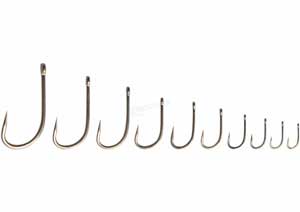
Our Hooks Our own hooks may often work in tandem, so as we unhook ourself from one hook, we can then be free to choose where now we want to place our hooks. Being aware of our unhelpful hooks (alongside limiting beliefs) and also choosing to utilise the positive ones may be supportive. Our hooks can carry unhelpful messages, e.g. "It's weak not to know things", "I'm not good enough". Letting ourselves off our hooks may help us. It can be as if we have our own personal colour coded hooks (often felt initially in our body), some of which we are unaware of are spontaneous, catching us by surprise, which can be too late, because we have unconsciously reacted now, linked to events from our past, as if we are experiencing our own condensed history now. Our hooks may be closely tied up with our personal identity. We can allow ourselves to be hooked in, take the bait, and unhooking ourselves, supported by our boundaries, can enable us to get off our hooks, free up more space. (See also Old Hooks, Buttons, Triggers, Played Out In Our Relationship)
Counselling & psychotherapy can be a space to explore our personal hooks, triggers and how these might affect the weighting we put on things, ability to disidentify from our hooks, triggers. These may include times of conflict, feeling under threat, stress, trauma, shame, grief, living from our own internal drama triangle (especially when we are hungry, angry, lonely, tired, lost or stuck or experience loss, separation).
You do not have to be good."Wild Geese" - Mary Oliver
You do not have to walk on your knees
for a hundred miles through the desert repenting.
You only have to let the soft animal of your body
love what it loves.
Tell me about despair, yours, and I will tell you mine.
Meanwhile the world goes on.
Meanwhile the sun and the clear pebbles of the rain
are moving across the landscapes,
over the prairies and the deep trees,
the mountains and the rivers.
Meanwhile the wild geese, high in the clean blue air,
are heading home again.
Whoever you are, no matter how lonely,
the world offers itself to your imagination,
calls to you like the wild geese, harsh and exciting—
over and over announcing your place
in the family of things.
Unconscious Thoughts & Beliefs Often our thoughts, beliefs, expectations, and indeed actions, are not conscious - they lay outside of our awareness and affect the weighting we put on things. We can be in reaction to these. Counselling & psychotherapy can help us become aware of the sources of these, so our choices & actions become less automatic & more conscious. (See also The Realm of the Unconscious)
A subtle thought that is in error may yet give rise to fruitful enquiry, that can establish truths of great value.Isaac Asimov
Our Opinions Linked to our beliefs and what we tell ourselves, we may hold on tightly to strong opinions about a lot of things (see also Concrete Thinking, Rigid Thinking, Thinking In Absolutes & Over-Generalising - All Or Nothing Thinking, Either/Or Thinking, Duality). Others may be easily swayed from one opinion to another, based on our moods. The therapy can be a space to explore having the confidence to know when not to have an opinion, stick to our opinion, challenge ourself in seeing other perspectives, reconsider or reformulate our opinion

Our Preoccupations Sometimes we allow certain thoughts, worries to occupy our mind. Preoccupied by them, we can't seem to get them out of our mind, as if we are running marathons in our mind, thinking about what we've done, need to do. Like a bicycle we may want to check the breaks of our own mind and put a thought break on any unnecessary, uninspiring thought. And taking a thought break, slowing down our thoughts, transforming our restlessness to restfulness, can release tiredness and help with clarity. We may become tired. A preoccupation for some may be questioning how we can have control over feeling safe, which may lead to us being defensive and we may it supportive to consider what is loving to us and others.
Fundamental Modes Of Thinking When we are caught in self-righteous, fundamental ways of thinking - whether it be political, righteousness about our personal religious beliefs, spiritual beliefs or we can only tolerate narrow bands of feeling and we may struggle with complexity, especially if our boundaries are rigid. Holding on to our own version of reality, we may feel very uncomfortable inside, yet at the same time may thrive on disagreement and challenge of others. Underneath our concrete thinking may also live a primary need to belong.
A subtle thought that is in error may yet give rise to fruitful enquiry, that can establish truths of great value.James O'Brien
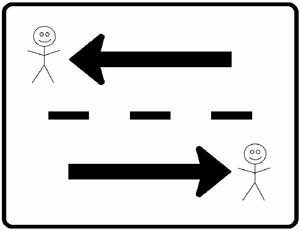

Concrete Thinking, Rigid Thinking, Thinking In Absolutes & Over-Generalising - All Or Nothing Thinking, Either/Or Thinking, Duality Narrowing things down to a limited set of beliefs, options and choosing the most obvious one can at times be helpful, especially when we are in a hurry or need to focus. Sometimes, in our fundamental way of thinking (including either/or, polarised thinking, convergent thinking), it can be as if things have to be totally one way or the other, affecting our opinions, (see also The "Should", "Shouldn't", "Ought", "Must", "Never", "Always" Beliefs). Some of us may idealise or denigrate others. Taking everything in extremes or thinking that way affects our moods, feelings (e.g. depression), behaviour, creativity, ways we say things, sabotage things, or judge things. We may inappropriately magnify certain things - blowing them up out of proportion or shrinking the importance of other things. As a protective pattern we may split things off in our head (splitting), so that in our "everything or nothing" thinking, things have to be this or that, where things must be "completely", "entirely". We may end up disappointed. The therapy may support us in re-owning any aspects of us that may have been cut off. Over-generalising - holding a view that this is the only way it will be fixed can be a defeatist position and not serve life. We may therefore feel stuck, lost. We may also struggle to have a mental filter so we dwell on the negative and rarely explore the positive (see also Optimism, Pessimism & Discounting The Positive). As if nothing is in-between, we may have black and white thinking and our shadow, shades of grey or other colours for us, alongside mystery, may be overlooked. Developing our divergent thinking, dropping any rigidity, open to a range of possibilities, perspectives, ideas may support us, change our view of reality. "Is there another way I can see this?" can be a useful support. As if wearing blinkers or holding on to rigid boundaries some of us may have developed concrete thinking, rigid thinking, a way of thinking in absolutes (especially for those of us who can't bear the unknown - see also Uncertainties, Contrasting, Conflicting & Contradictory Feelings). Sitting with being unsure for a while, to be relaxed with not knowing alongside our ambivalence may be a creative challenge for us. Yet being able to hold the creative tension can be important. A sense of not taking ourself so seriously openness to our light-heartedness, playfulness, carefreeness, laughter, fun and our sense of humour, may come in handy. When caught in our concrete thinking, it may be a lot to live up to (e.g. having to do things perfectly or not at all, success or failure, right or wrong, good or bad, winner-loser, either-or, input-output), which may limit the way we see & act in our binary world. Accessing our intuition, flexible thinking, creative imagination and being curious, holding an attitude of what we might need to learn, following our heart, noticing nuances, may also assist us. (Valuing mutually dependent opposites as in nature may help us.) The integrative counselling and psychotherapy can explore ways of encompassing so called ambivalence, contradictions, paradoxes, opposites (certainty/uncertainty, I/other, intellect/emotion, inferior/superior, body/mind, gay/straight etc, negative/positive feelings, good/evil, human/spiritual, being/doing, consciousness/brain, suffering/love, love/will, life/death, inner/outer, spirit/matter, with me/against me), any limiting beliefs, thoughts and what else may be emerging for you, including any existential concerns which may emerge. Acceptance of "what is" may be a need for some, accepting difference - for others. (See also Life's Predicaments, Paradoxes, Contradictions, Conflicts, Contrasts, Dilemmas)
There is nothing either good or bad, but thinking makes it so.William Shakespeare - Hamlet
All-Or-Nothing Thinking Affecting Our Relationships In relationships, we may idealise or devalue the people we meet or struggle with commitment. When we hold on to all-or-nothing beliefs we may easily become angry or withdrawn. We may also struggle with being autonomous yet part of a couple, what is ours, our partners or belongs to us both. We may experience all or nothing feelings, e.g. we must either feel loved or get approval, affirmation, reassurance, recognition, validation, appreciation, praise, permission, confirmation, otherwise we may feel rejected, abandoned.
Compartmentalising Things Compartmentalising things - putting things in boxes, can sometimes help, so we can get on and do other things, or not become too preoccupied. However, we may compartmentalise our thoughts, beliefs, behaviours & life into neat or separate boxes, which may not always help. We may also compartmentalise things that are too hard to look at (e.g. our own unwanted habits, addictions), in order not to feel or because we struggle to integrate all our feelings. Some of us may live our whole life compartmentalising things, as if everything is separate, not interrelated. This may include separating out our body, feelings, mind, sexuality or our spirituality, as if these aspects of us are unrelated (see Overwhelmed, Overloaded, Overstimulated). Disconnected, we may struggle to integrate all aspects of our life and this may affect the weighting we put on to things. The integrative approach to counselling & psychotherapy can explore this with you & supports you in this integration including our all or nothing thinking unconscious aspects.
Thinking On Autopilot Some of us may have a lot of autopilot thinking, when our mind churns around thoughts, robot-like or in disconnected ways (which for some my set up future regrets). We may feel numb inside, not be emotionally engaged with ourself or the task in hand, as if we are daydreaming and have put our life on hold, lost our Self somewhere. The counselling & psychotherapy can be a space to explore what else is happening for us around this and our conscious choice to reach for thoughts that make us feel good or bad.

Convergent Thinking, Divergent Thinking Choosing the best option, solution at times may include convergent thinking (first identified by J.P.Guilford) - coming up with a standard correct answer or divergent thinking - creatively exploring possible perspectives, options, multiple possibilities, solutions. This includes simultaneously holding contradictory ideas in our mind alongside revising and shaping new ones enabling change, growth. The counselling and psychotherapy can explore these different modes of thinking alongside life's paradoxes, contradictions, conflicts, contrasts, dilemmas, confusions, ambivalence.
Background/Foreground Thoughts, Our Self-Talk, What We Tell Ourselves, Internal Dialogue - Choosing What We Think The thoughts in our foreground, background shape whether we feel anxious, low, joy, have peace of mind. It can be important to remember that facts are facts, that feelings are not facts, and that what we tell ourselves about facts defines how we feel. Everyone talks to themselves (self-talk), have conversations - an inner chatter that runs in the foreground and background of our mind and our negative or positive commentary affects our attitude & achievements. Our internal dialogue, choices of thought can be as supportive or unsupportive, as we can be to ourselves (and we often feel this differently in our body - see also Our Painbody). What we tell ourselves, the narrative, script we hold, influences our actions (see also Utilising Our Mind - Controlling Our Thoughts Affecting Our Actions) & how we are in the world. (We can also have imaginary conversations in our head with others.) Some of our thoughts may go round & round, replaying, organising, imagining, planning, plotting, rehearsing - "what am I going to do next?", and be unsettling, especially if we always need to maintain control. Our monkey mind may race ahead. Replaying things over in our head and thinking about future scenarios, impacts upon the way we are. What we tell ourselves - having a running commentary in our head, working out what may happen, can make us anxious, fearful, affecting our body - with corresponding physical symptoms, sleep, eating patterns & general functioning. (Some may become easily bored once we have imagined the result of things in advance. Others may be tempted to overshare their feelings, thoughts, maybe linked to our porous boundaries.) Unchecked, our internal dialogue stops us being present, engaging in life. Choosing our self-talk in negative ways, eroding our confidence, is one option. The impact of what we say, tell ourselves, affects us. Moving away from our personal doubts, we may want to take responsibility for our unhelpful narratives, complaining, for example "life is mundane". We can sometimes have an internal argument with ourselves between different sides of us. We may have a strong internal judge, inner critic (see also Inadequate, Inadequacy) or perfectionist. This part of us may try to cover up our difficult primary emotions, substituting them with secondary ones. (And different parts of us may be in ping-pong dialogue with ourself.) Some thoughts are important, others not. Our mind may wander off somewhere, feel lost. What we tell ourselves about situations may be different to the reality and we may struggle to let go, be in the moment, express gratitude. The therapy may include looking at the thoughts we induce, becoming conscious of them, discussing the importance & significance of them and how we filter them. We may also want to review the time we spend on our thoughts, how we invest them negatively (see also The "Should", "Shouldn't", "Ought", "Must", "Never", "Always" Beliefs) or constructively, on the things we want to develop and how we are in touch with what inspires us. Changing the way we feel by acknowledging (even apologising to ourself), yet saying "enough" to our negative chatter may assist us alongside listening to our internal dialogue in compassionate, respectful ways, giving ourself credit, boosting our self-worth, being supportive, encouraging. We may also have a choice whether to listen to a second voice - a deeper inner voice (maybe more elusive, distant, yet always present) of a more intuitive, guiding, caring nature, so our running commentary comes from our core self, less so our wounded self or early unconscious beliefs. Counselling & psychotherapy can help by hearing & unravelling this. We may also have imaginary conversations in our head with others, and the counselling can also explore the meanings of these, how they shape our opinions alongside any unhelpful habitual thinking patterns, negative thoughts and scenarios, so we engage with thoughts that empower us, talk to ourselves respectfully, compassionately. (See also Listening To Ourselves)
Reframing, Limiting Beliefs, Mindsets Mindsets are based upon the way we see the world, including our beliefs, thoughts and attitudes. And what we believe matters. From the early times we assimilate and inherit beliefs and breaking free of any limiting beliefs, so they no longer skew our decisions, life direction may be important. We can limit ourselves in many ways including holding onto concrete thinking, through limiting our beliefs especially if we get caught in our old hooks. We may hold on to beliefs about ourself that are limiting - stopping us from fully living and this can erode our esteem. What we make of experiences, including who we had to be for our parents (see also Unhelpful, Redundant, Inhibiting Rules, Loyalties, Oaths, Sacred Cows, Obligations, Duties, Taboos, Cultural Conventions), our perception and emotions can at times limit our beliefs and the counselling can explore these with you (see also Our Assumptions & Interpretations). Some of these beliefs may come from our wounded place. Linked to our self-doubt, we may be holding onto habitual, mental attitudes, limiting beliefs, disabling narratives, scripts we tell ourselves, which limit our options, potential and creative imagination and this determines how we interpret & respond to situations. Keeping an open mind, allowing ourselves to daydream, transforming our limited beliefs (e.g. "It'll never happen" to "I suppose it does happen", "I can't" to "I suppose I can", "I will never be able to do this" to "I suppose I am able to...") may enable us to think outside the box as to what's possible. The therapy may also explore any rigid, fixed beliefs written in stone, how we can repair our limiting beliefs with more positive ones, how we can step away from them, be in a place where we can let go of needing things to be different than how they are and live from our truth, where beliefs can simply be experienced as perspectives. This can empower & transform our limiting beliefs and emotions as we choose to direct our energy, so these beliefs don't dominate. The counselling can explore how we re-frame things, where reframing is a way of experiencing and viewing emotions, ideas, concepts, perceptions, conclusions, events to select more positive alternatives (see also Optimism, Pessimism & Discounting The Positive). An example may be if we hold a lethargic, languishing attitude, as opposed to a thriving attitude, the way we view challenges may be filled with anxiety or embraced with positive acceptance, where obstacles may be avoided or given up, rather than turning to our key strengths. We may ignore or feel bad about criticisms, rather than choose to learn from them and when failures happen we may beat ourselves up, give up or could choose to withstand them, persevere, and find alternative approaches, because we have a growth mindset, holding acceptance, embracing challenges. When we come up against a limiting belief, fixed mindset, "Is there another way I can see this?" and creating a positive affirmation to combat the limiting belief, repeating this in order to build upon our new, empowering belief can be a freeing, flexible response. The counselling and psychotherapy can explore how we feel about our beliefs, mindsets and the attitudes we hold alongside looking at the cost of our limiting beliefs, understanding where they come from - usually stuck in the past somewhere and calling upon current evidence that now undermines our limiting beliefs. Choosing one limiting belief at a time, realising the cost to our self of this belief, why we have this belief - where it comes from, and choosing to emphasise any current evidence we have that undermines this limiting belief, replacing it with a more positive, empowering belief can be releasing, especially when we feel, acknowledge, release the pain, intensity of our limiting beliefs. (See also Utilising Our Mind - Controlling Our Thoughts Affecting Our Actions)
The world we have made as a result of the level of thinking we have done thus farAlbert Einstein
creates problems we cannot solve at the same level of thinking at which we created them.
Power Struggles Inside Our Head Sometimes we can be extremely disciplined, and on other occasions - abandon ship, as if we want to change but a part of us doesn't want to. Inside of us there can be a sense that knows what we need to do (whether it's to stop procrastinating, stop our unhealthy habits, addictions). We can go into reaction from another part of us in resistance, maybe our internal rebel, saboteur or trickster mind, who is permissive and can't bear being told what to do, feeling controlled, because our wounded self, who would do anything to avoid pain, does not have willpower or skills to set inner boundaries to support us. And this part of us may be judgemental, critical of our "righteous self". We may need our disciplined loving adult to trust and be in our inner authority, so we take responsibility or all our feelings.
Self-Defeating Thoughts Linked to self-doubt, some of us may hold such self-defeating thoughts, stopping us in our tracks (e.g. "It's too late to change", "It's too much work, so I won't bother", "I will never be able to do that", "I'm just not good at it", "I'd rather be right than happy"). We may want to acknowledge that our unpleasant thoughts are not always necessary and can begin to choose thoughts that feel better. Self-encouragement and a degree of optimism may be in short supply. Our cynicism may rule.

Nihilistic Beliefs Nihilism comes from the Latin "Nihil" - nothing. And Albert Camus writes of that nihilistic, ill-fated belief when he compares the absurdity in Greek mythology of Sisyphus when he unhappily and without revolt becomes condemned for eternity to push a boulder up a mountain, only to see it roll down again (see also The Absurdity Of Our Existence - Living With The Absurd). We may struggle to let go of control. Alongside pessimism, catastrophising, awfulising, impending doom we can hold nihilistic beliefs, often from old loyalties, underlying fear, self-criticism, our wounded self (and self-sabotaging behaviours - some of which may be unconscious), that life has no meaning or purpose, that morals too are worthless, nothing. This can bring about not only anger but a sort of existential nihilism - that nothing matters, that hopelessness triumphs over hope. Lost, stuck inside, fear of death may be overwhelming for some, yet others, stuck in their nihilistic beliefs can't wait for this. Some of us may have magical beliefs that if we think, expect the worst, we avoid disappointment. We may have overlooked all different connections in our life, living in the moment (rather than past pain, future pointlessness). Nihilism for some is not necessarily a negative trait and can be experienced as absurd in a neutral or positive light. Maybe bored inside, some of us may be in an inner fog, lost. (Martin Heidegger writes of profound boredom, "drifting here and there in the abysses of our existence like a muffling fog".) An aspect of healing the unhealthy, negative side of nihilism may include grieving what we need to grieve, viewing suffering and love as two sides of the same coin, overcoming painful feelings, the dark nights of the soul, sitting with unbearable feelings, allowing for life's mysteries, choosing to live a life with appreciation, gratefulness, gratitude, light-heartedness, playfulness, carefreeness, laughter, fun and our sense of humour, some joy.
Dying is easy, it's living that scares me to death.Annie Lennox

Intrusive, Invasive Thoughts, Unhelpful Habitual Thinking Patterns, Unproductive, Negative Thoughts & Their Meanings We all have conscious, unconscious intrusive thoughts (or images) - our favourite ones, maybe secret ones, disturbing ones, sometimes related to our shadow side. (Sometimes, if we have an inflated sense of responsibility, often feel guilty, or if we lacked emotional containment and safety when younger and struggled to regulate our emotions, this can fuel our intrusive thoughts.) Counter-intuitively, by accepting them for what they are - just intrusive thoughts, we don't have to judge them or act upon them. And if our self-image is negative, so too may our thoughts be (see also Unhelpful Self-Beliefs Related To Our Esteem). Some of our unhelpful thinking, negative attitudes, may have formed patterns going back some while (see also Early Unconscious Agreements, Beliefs), informing our internal dialogue as we worry more. Lacking softness, we may have become very judgemental, critical, of ourself. As a distraction, our sadness, fear, anxiety, insecurity, esteem, or anger may be unsafe to express, can further distort our thoughts, that get created, which may become intrusive, irrational, unhelpfully negative in attitude and circular, unproductive or irrelevant. We may also need to learn to control our mind and properly respond to negative emotions and thoughts as well as paying attention to our body and its interconnection to our thoughts, emotions, etc (see also Our Painbody). Having thoughts, which render us anxious, hopeless, disempowered may be counterproductive, and we may be seeking ways how to positively respond to them. Caught up in our mind with unnecessary thoughts we may want to give our mind space. Recognising, observing, tolerating our negative thoughts, without suppressing them, yet not being preoccupied by them may be important, as can naming, labelling our emotions. Postponing or letting go of unhelpful negative thoughts, invasive thoughts, remembering & reminding ourselves of our goals, looking forward to the results may support us and reduce our anxiety (see also Compassionately Managing Endings, Loss & Grief Of Others & Aspects Of Our Own Life). Being in touch with supportive others can also provide positive mirrors in checking out these unhelpful thoughts, beliefs and subsequent weighting we put on things. The counselling and psychotherapy may explore any habitual thinking patterns - e.g. making mountains out of molehills, rather than seeing things as they actually are, where reality checks can help, reframing our thoughts (see also Obsessive Thoughts, Obsessive Thinking, Overthinking, Fixating, Overanalysing Things, Paying Attention To Detail - Can't See The Forest For The Trees). The therapy may also explore our intentions behind our intrusive, invasive, unproductive thoughts, their meanings, the benefits, identifying the feelings underneath that we may want to avoid or resist - naming & acknowledging these (and associated reminders from the past, old wounds), alongside exploring what we may be trying to control. (Trauma for some may also play a part in our intrusive thinking, and this can feed our obsessions, compulsions, which when younger, may have kept us safe.) As a child, and maybe continuing now, we may have developed magical thinking - that if we worry enough about something, it won't happen. It may also help to view our negative thoughts as taking up residence in our mind, so we can choose how long they can stay and evict any unwanted guests - making our mind a space for clarity, creativity and peace, envisioning positive outcomes, the life we want. We could view two types of thoughts - ones that feel good, are loving, aligned to our essence, or thoughts that are not aligned and feel painful. Whatever we feed grows, and the therapy explores how they can diminish, so we no longer keep them alive, nor engage with them. The therapy may also explore our relationship to any intrusive thoughts and acknowledges that our intrusive images, thoughts, are not impulses and may explore how our invasive thoughts may be distractions from something else we don't want to face and may also include looking at alternative ways of re-framing our beliefs, postponing our unhelpful thinking, negative thoughts, any learned helplessness, so we engage with thoughts that empower us and ask ourselves "Is there another way I can see this?", consciously allow in and focus on positive thoughts, so we are more mindful, present in the moment, exploring ways we can experience joy, vitality, gratitude.
Mundaneness - Believing Life Is Mundane The mundaneness of life can't always be avoided. We all have routines, a level of ordinariness, when nothing special happens and things can be predictable. Yet some of us believe that life has to be mundane (see Background/Foreground Thoughts, Our Self-Talk, What We Tell Ourselves, Internal Dialogue - Choosing What We Think), as if there is no other choice. Some of us may mistake mundaneness for boredom. We may have abandoned ourself or be lonely, empty inside. The mundaneness that we experience may point to changing some old routines and something inside of us seeking change or failing to see beauty in the mundane. We may feel disappointed, stuck, maybe blocked, have unexpressed feelings, go numb, sometimes feel depressed, living life on automatic, just going through the motions as if there is no other way out, that we have no free will. Our imagination, vitality may have diminished and we may have lost touch with who we are. The mundaneness we experience in life may also have an existential element or nudge us to seek deeper meaning.

Discomfort Inside, Dissociation It can be useful to disassociate at times as a defence to manage our stress, fear, anxiety. Sometimes it is a response to our early bonding patterns, attachments, neglect (and this can point to the severity of our disassociative experiences now). Sometimes our discomfort may be connected to our struggle responding to uncertainties, contradictions, ambivalence (see also Uncertainties, Contrasting, Conflicting & Contradictory Feelings). Tense inside, we may hold discrepancies, have opposing thoughts, beliefs, values about our own identity & self-image. Others may experience lots of thoughts to'ing & fro'ing like waves which we find hard not to get carried away with. Reducing our discomfort around this, being grounded, may be important. As a way of coping with stress, we may experience inertia feel lost, stuck, in an inner fog, distant, disconnected, watching ourself from afar, maybe numb, frozen, depersonalised, as if in a fugue state. We may feel dissociated from our self or as if parts of our body are unreal, don't belong to us (maybe cutting off sexually) have identity confusion - struggling inside with who we really are or feel and act like different people at times (identity alteration). This dissociation can be experienced as our survival strategy, often as a response to trauma, enabling us to distance ourselves, disown what is happening, yet we may experience shame or self-hatred and may struggle relating with others. (Once this pathway to disassociation is established, we can then easily slip into this disassociative experience, when feeling stressed.) We may have problems with memory (memory fog), lose periods of time (amnesia). Our ADHD/ADD may be a consideration. The therapy may explore any underlying anxiety, depression and how we can find our way through these challenges (see also Integration). The therapy for disassociation may also allow for how we can be more coherent so we feel less fragmented and have self-compassion so we can soothe ourselves. The therapy work may also include visualising, practising self-acceptance, closeness, bringing our self back home (re-owning all the parts of us that may have been cut off), fully inhabiting our body (so we no longer flee our body), our self, so we gain a sense of comfort, internal warmth, as may feeling safe enough inside to let go of disassociating.
Your conflicts, all the difficult things, the problematic situations in your life are not chance or haphazard. They are actually yours. They are specifically yours, designed specifically for you by a part of you that loves you more than anything else. The part of you that loves you more than anything else has created roadblocks to lead you to yourself. You are not going in the right direction unless there is something pricking you in the side, telling you, "Look here! This way!" That part of you loves you so much that it doesn’t want you to lose the chance. It will go to extreme measures to wake you up, it will make you suffer greatly if you don’t listen. What else can it do? That is its purpose.A.H.Almaas

Life's Predicaments, Paradoxes, Contradictions, Conflicts, Contrasts, Dilemmas To be human is to live in paradox - the sometimes bittersweet paradoxical nature of doing and being, existence, suffering and love, the pain and joy of life - opening our heart to heal love. We may be at a crossroads in life - making decisions, making choices, torn between choices. Not all problems can be solved and reframing them as predicaments can assist (see also Fixing Things - The Need To Be Fixed). As Margaret Mead says "We are continually faced with great opportunities which are brilliantly disguised as unsolvable problems", especially ones between head / logic, our heart and inner wisdom - see also Suffering & Love. Sometimes our concrete thinking, rigid thinking, thinking in absolutes and over-generalising - all or nothing thinking, either/or thinking can get in the way. (When faced with the need to make a choice, sometimes naming the positive advantages out loud and sensing what seems intrinsically more right for us, supported by our integrity and values, can assist us.) Not everything is a choice, yet we do have a choice in how we experience and engage with life, and the meaningful choices we make shape our life - living our life deliberately. It's usually true that problems rarely feel like opportunities, yet fully entering into our problem, dilemma, we may find that it isn't the circumstances or situation that is most challenging but more the challenge to experience the depth of our true our feelings to their fullest (which can paradoxically dissolve them) and to compassionately manage our emotions around our experiences with discernment, opening the space for more clarity. Acknowledging our "should", "shouldn't", "ought", "must", "never", "always" beliefs, unhelpful, redundant, inhibiting rules, loyalties, oaths, sacred cows, obligations, duties, taboos, we may want to creatively transform up to date responses to what's happening in our life. And we all struggle when we take things too personally or when we experience competing priorities, intractable situations, are faced with a choice between two unsatisfactory options, feel stuck between a rock and a hard place (see also How To Stop Procrastinating - Making Choices, Indecisiveness, Decision Inertia). Sometimes there may be an easy right and sometimes a hard right where we need to take the long way home. Responding to life's mysteries, paradox & contradictions, dilemmas, ambiguities, double binds and living with uncertainty, tolerating not knowing, holding, responding to ambivalence can be challenging. These experiences may push and pull in opposite directions, and we may get caught in what seem like a "Catch 22" situation, as if we feel trapped, are "damned if we do, damned if we don't". We may be indecisive, or struggle to care deeply about more than one thing or can't always do both things (what we do doesn't have to make the other wrong). Sometimes the only one constant in these contradictions is us. (And paradoxically we can become closer to who we are, and our core self, by disidentifying, being in touch with who we are not, ridding ourself of any obstacles in the way, including our limiting beliefs, perceptions.) In life we will come up against a range of choices, loyalties, feelings, contrasts, contradictions, paradox and dilemmas which point towards not only healing our wounds but also our growth, integration. This may entail holding the creative tension without demanding total resolution to things, rushing to judgement before learning what these dilemmas are teaching us, taking the long way home. Sometimes there are no easy answers to our dilemmas, or predicaments which may have no solution and on occasions some things may not change or be resolvable, but our capacity to cope can change (sometimes through guidance and in touch with our deepest truth). And more than we realise, there may not be solution - more a challenge for us to change, where we may also underestimate our power, that there is always something we can do. (Acting intuitively at times and counter-intuitively other times may be exactly right for us.) Problem-solving situations can be difficult, because we are in the heart of situations and part of the equation. And it can be worth bearing in mind the Tony Robbin's statement, "Problems need energy to live". We may carry lots of baggage affecting our ability to come up with solutions. When we do make solutions happen, we can break them down into manageable steps, focusing on working through one step at a time. We may have an image of what we want and in the end only we can decide - for no one can make us do anything and we can choose what influences us through listening to our conscience. Honouring our self, our values, ethics, conscience, morality, personal integrity, grace may also support us, as can considering changing our relationship to some things, even f the right thing itself does not change. Some people have also found the following framework helpful to make informed decisions:
- High Impact & High Risk
- High impact & Low risk
- Low Impact & High Risk
- Low Impact & Low Risk


Counselling For Life's Predicaments, Paradoxes, Contradictions, Conflicts, Contrasts, Dilemmas, Ambivalence We all have contrasting, varied roles in life, which can be contradictory, challenging. We may want to utilise the counselling & psychotherapy to clarify what exactly is our predicament, dilemma, what specifically is problematic, what also might be at stake, what are our unmet emotional needs, what story are we believing, how in any ways we have we been complicit in this situation happening in our life and what may lay underneath these. Inside we can also feel both positive and negative feelings, introvert sometimes, extrovert on other occasions. We may want to be more in touch with a sense of what we are, our own essence and internal presence without thoughts consistently in the foreground. Embracing, being in touch with our courageous heart, head, instinctive feeling sense, energetic reactions in our body, what this dilemma below the surface really means for us, what instinctively feels more regressive, progressive, what we need to learn, what we truly value and need to let go of may help us, especially when connected to our own conscience, moral compass, integrity. What may also assist may include holding our nerve while identifying our resources, what's closer to our goals, purpose, utilising our inner wisdom, our thinking and acting creatively outside the box, supported by building, maintaining supportive habits, routines, rituals, patterns, so our lifestyle takes us closer to what we want. We may also want to explore, completely identifying, visualising and envisioning what different outcomes would really feel like as if sitting in different chairs, fully experiencing the emotional texture - felt sense as if allowing the experience to marinate as we open fully to the predicament/dilemma, sitting with and really sensing each position, contacting, what feels more right, enabling us to utilise our personal will towards change, decision, action, focusing now on what is truly in our highest good. This can be supported by bridging these apparent opposites, listening to the depths of our mind, heart, wisdom, kindness, the combination of aligning our love and will. The therapy can be a containing space exploring life's predicaments, paradoxes, contradictions, conflicts, contrasts, dilemmas, ambivalence including:
- Wanting to change others, situations
- Dilemmas about our own sexuality
- In our relationship being autonomous & part of a couple, contradictory, ambivalent, mixed feelings about our partner, wanting connection yet fearing commitment, loss, rejection, abandonment, engulfment
- Uncomfortable feelings
- Getting rid of anxiety
- Interconnectedness of suffering & love
- Confusions
- Uncertainties in life, unknowns, mysteries
- Uncertain, contrasting & contradictory feelings
- Repressed, suppressed feelings
- Convergent, divergent thinking
- Being in our being
- Uncertain, contrasting and contradictory feelings
- Thinking in absolutes - all or nothing thinking
- Suffering & love
- Being & doing
- Being both who we are & full of potential
- Not knowing, meaninglessness
- Personal will, collective universal will
- Certainty & uncertainty
- Time & space
- Consciousness in & beyond us
- Free will & relationship to fatalism, preordainment, determinism, indeterminism & randomness, karma, nature & nurture - dilemmas, challenges
- Ambivalence
- Coming up against our mortality
- Dependence, independence, interdependence, codependence - moving in & out of these states
- Creative dilemmas
- Existential dilemmas
- Spiritual dilemmas
- Being on our own path
- Experience our feelings to dissolve them
- Helplessness of things outside of our control
- Suffering & love
- Opening to our vulnerability
- Coming out, through the other side of depression

Prioritising Things & What's Important With Ourself, Others We highlight points in text that are important, interesting (or highlight, accentuate, our best features with beauty products). And we can also do the same in our minds and our life - highlighting, emphasising, accentuating what's positive, interesting, and important in our life. How we prioritise things that matter to us, what we value helps inform the decisions we make and help plan our goals. Prioritising things helps us figure out what's important and needs to be tackled first. Reconciling how to prioritise things, what's urgent, important to us (and not for others, yet respecting theirs) and communicating our priorities can be challenging as can exploring if or how our and others' priorities can be harmonious, knowing when to adjust to our own priorities when necessary, may also be important. (See also Life's Predicaments, Paradoxes, Contradictions, Conflicts, Contrasts, Dilemmas)


Discernment Filtering things and having clarity can support us as can not cherry-picking information (e.g. selecting bits of text we pick up from AI, social media), but being through with any research. Action is important to us, yet so too may be inaction - the knowledge and power of discerning when to and when not to act and work out what is good for us, what isn't (or at best what is for our highest good). This may also include whether to say certain things, or say nothing at all (see also Good, effective communication), when to keep going or whether to stop, when to hold on or let go, when to step in and when to step back. Discriminating the difference between things can assist us. Taking risks can be challenging, as can negotiating life's predicaments, competing priorities, paradoxes, contradictions, conflicts, contrasts, dilemmas, ambivalence. And our moral discernment can support us, so we don't get stuck in procrastination, but also act, if and when we choose to.


Our Perspective What preoccupies us can be seen from different broad or narrow angles, perspectives (see also Being & Doing - Dilemmas We May Hold). The way we see things (including any problems) may not always be the way they are - one person's loss may be another's adventure. Stepping back and observing things from a distance, taking a bird's eye view with different lenses can change where we see things from, widen our choices when making decisions. We can step back from outlooks, thoughts, emotions. One way to reduce the emotional impact of thoughts is to have perspective by looking at them, rather than from them, being less egocentric. Moving our body can help widen our perspective as can self-reflection. Shower thoughts, insights, can also be when we reflect differently. The therapy can help us reflect upon and name our moods, thoughts and outlook (which influence our perspectives), e.g. worrying, criticising, judging, organising, planning, remembering, rehearsing, what may happen and what we need to do next, etc (see also Fear Of Not Knowing (FONK Counselling) Tolerating Not Knowing - Our Need To Be In Control, Agnosiophobia Counselling). Divergent thinking, utilising the vastness of our creative imagination & associated images, giving our mind space, viewing both the panoramic view as if from above and small details, allowing for what emerges. This may broaden our perspective also affecting our vitality. Creatively thinking our way through things, finding solutions, re-deciding things may also help. Counselling & psychotherapy can help us look at different perspectives, angles, which can reduce our limiting beliefs, mindsets, reframing these, what's helpful and rational, exploring our own rationality, for example, we may be inflexibly holding on to an overly pessimistic or optimistic attitude. We may have overlooked what we appreciate in our life and want to spend our valued time on things that really matter. We may want to view situations, problems in a different light, from different perspectives, so how we view us & others can evolve (see also Mentalising). Being in touch with what we value may also support our perspective about what we appreciate, respect, as does listening and fully engaging with others.
I've looked at life from both sides nowJoni Mitchell
From win and lose and still somehow
It's life's illusions I recall
I really don't know life at all
I've looked at life from both sides now
From up and down, and still somehow
It's life's illusions I recall
I really don't know life at all

How Our Perspective May Influence Situations Sometimes perspectives from our past can cloud our vision now (see also Becoming Our Vision, Visualisation, Envisioning The Reality We Wish To Be True), give us rigid boundaries. And being in touch with our desire, future potential, shifts our perspective. We can choose to see difficulties in situations, or opportunities, focusing on possibilities or impossibilities. We may have become a little blinkered by what we know (alongside our limiting preoccupations), and it can be challenging to give our mind space, seek other, different, larger perspectives or opinions, stepping outside our comfort zone, stretching ourselves, allowing ourselves not to know, which can open up the space to make quiet time, take pauses, in order to reflect, observe, mentalise things. When a situation becomes difficult, we may automatically view it as if it is a problem, compounding this with worry, frustration, disappointment. Yet seeing situations as challenges or even gifts, can change our perception, the meanings we make and in turn create a different type of feeling & experience, which impacts upon how we respond to situations. Framing situations as problems may make it more difficult for us to solve problems. Our problems come & go and continuously thinking about them, magnifies them. Re-framing problems into possibilities for learning, knowing they will pass and we are bigger than them, will handle them, wondering what opportunities may also be possible, can bring about aspects we haven't considered, noticed before. Different solutions, insights may emerge, facilitating change, transformation. Keeping an open mind as if seeing things from afresh, connecting, interacting with what inspires us and being with supportive others may also widen our perspective. Being curious, asking others (even those who we believe know less than us) may enable us to engage with fresh or adventurous ideas, or come up with novel, simpler approaches, which we may want to give consideration to. Holding a mature perspective in our relationship, so we can respond to any challenges may be important.
Do we see things as we are, or as they are.

Our Perceptions, How We See Ourself Our perceptions are influenced by our unconscious. How we see ourself in the mirror, and want to be seen is also informed by our senses, view of reality, our beliefs and what we tell ourselves, the weighting we put on things (often influenced from life's experiences, others' comments) whether strong, introvert, extrovert, interesting, wilful, incapable, kind, awkward, creative, how we over-estimate or under-estimate ourselves, etc. These influence how we carry ourself - our demeanour and how we project and present ourselves onto the world. We all see the world our own way. Our perceptions are influenced by whether we view the world as a challenge or struggle, a place to learn, or a stage. Our perceptions can be deceptive (see also Concept Of Time, Timelessness, Time Passing), influenced by the lens we see things from, that our "reality" can be interpretation (e.g. we see the Sun moving each day, yet it is the Earth moving around the Sun). The counselling and psychotherapy can help explore our perceptions and whether we want to reflect on who we really are and want to be, our intrinsic self-worth, the value of daydreaming and give ourselves the best possibilities to flourish.
When the doors of perception are cleansed, man will see things as they truly are, infinite.William Blake
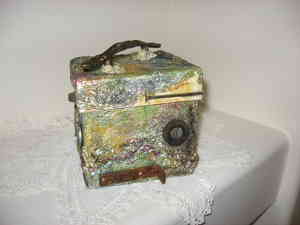
Relationship Between Our Perceptions, Attitude & Approach Our perception can be seen as the way we uniquely understand things affecting our relationship to life. Our perception not only affects our stress, fear, anxiety but also our approach and attitudes and attitude towards risk. We perceive the world through our senses and how our brain makes sense of information underpins everything we know and believe. And each experience, object, evokes reactions in us (e.g. favourable, unfavourable), as if we are invested in them and they, therefore, in us. We also see the world through the various lenses of our personal perception. And if our lens is out of focus, or very dark, our sense of reality may be blurred, distorting our perception. Cleaning, adjusting the lens of our perception may support us, so we are less confused or ruled by the impact of our past, which can also influence our relationship now. When things seem complicated, we can choose to simplify them by clearing away our unnecessary attitudes, associated memories, which shape and colour our current perception, triggering associated emotions, impacting on our present experience. Changing our healthy, constructive perceptions and give us positive perspective, which can support our peace of mind. Our perception is close to who we are. Seeing clearly, "in the moment", through situations & people as they are, free of projections, unhelpful self-talk, focusing on what matters, finding out what solutions are best, can make it easier on us. Our perceptions (especially old ones) are limited, partial, personal and can also be inaccurate, sometimes seeing what we want to see, not seeing other things. As we, others, and situations change, so too may we need to transform our perceptions - refreshing them, so we can see others and experiences more as they are. As we are in the world, so we affect the world (see also Ownership, Guardianship, Trusteeship, Stewardship). Our perceptions affect our feelings and the way we perceive things is influenced by the emotions we are experiencing and when we feed that feeling this produces chemicals in our body equal to that feeling. Where our attention goes, our energy flows. And sometimes our perceptions & attitudes can keep us trapped as if we are in a box, maybe accompanied by fear or doubt, and when we are willing to shift our perception or attitude, we can experience a freedom which can open up choices for us. Our box at times can be useful, giving us a boundary to ground our ideas, imagination, yet this may also restrict us if it becomes rigid, outdated (especially if the lid is too tight), affecting our attitude, approach and what we bring to the table. What we carry inside, the attitude, sense of calmness we have when we don't like things, affects us and others. Some of us may be quick to dislike things - staying in this place. Finding a way to like our dislike or some positive aspect of this so we hold a hopeful attitude and approach, may support us as may freeing up our choice to see things pessimistically, optimistically. If we hold an attitude of reluctance (e.g. "I have to do this, do that"), this can become an unproductive, unhelpful habit. And when we are reluctant, this energy become unfulfilling. "I want to, I will" carries a different resonance. We can choose to be critical or be appreciative. How we perceive others affects our relationship with them. The counselling & psychotherapy may therefore explore how we see things (see also The Realm of the Unconscious), alongside how we freshen up, spend our energy, broaden our perceptions, see other possibilities, what we create - our day, our life. This may include examining our values, assumptions, beliefs, prejudices, biases, templates, attitudes, intuition, etc. and examining how our perception creates our reality.
If you are distressed by anything external {or internal}, the pain is not due to the thing itself,Marcus Aurelius
but to your estimate of it; and this you have the power to revoke at any moment.
Negative Attitude Our negative attitude may be connected to our survival genes at play - the purpose of which is to anticipate worst outcomes, so we have a good chance to survive. Our attitude towards someone contains our perceptions and beliefs about them. Checking if they reflect reality may be important. If we are holding a negative attitude towards someone it influences how we communicate with them, and as a consequence our attitude will often be reflected back to us. Some of us may have unhelpful habitual thinking patterns, negative thoughts, others hold onto a learned helplessness. We may hold nihilistic beliefs, procrastinate, feel like a victim, struggle with change. And if so, we may have a pervasive tendency to seek out or create negativity, do things which make us unhappy (maybe even sabotage things, watching ourselves doing this), as if somehow reinforcing an old (maybe fatalistic) belief that this is our life script. We may want to get rid of habits, which no longer work for us. Letting go of what we need to - our negative perceptions, accepting things as they are, yet acknowledging we may prefer something different, can help dissolve things & release what we have been holding on to, so we have a greater capacity to be happy and love. Some of us may want to change our perception & attitude, so we are freer to be how we want to be, feel how we want to feel. We may want to no longer be fatalistic about change, creatively transform our perceptions, utilising our own possibilities, spotting any golden nuggets along the way, alongside being in touch with what inspires us, what we envision, value, supported by our free will, sense of humour & vitality. There is a Viktor Frankl saying "Everything can be taken from a man but one thing: the last of the human freedoms—to choose one's attitude in any given set of circumstances, to choose one's own way. When we are no longer able to change a situation, we are challenged to change ourselves." Counselling & psychotherapy can explore the beliefs we have about ourself and the wider world, any blind spots, and how these impact on our feelings.
I can see clearly now, the rain has gone.Johnny Nash
Outlook, Attitude & Its Effects Sometimes our intent to control can bypass our intent to learn about truth and love, and this is where our thoughts follow this intent. Our intentions affect our attitude which in turn affects our intentions. It could be said that our attitude is our experience and changing attitude changes how we feel and can influence how others feel (e.g. if we find our attitude towards someone is negative, this influences how we communicate and behave towards that person and our attitude will most likely reflect back on us, so if we choose a positive attitude, this may increase the possibility of a positive experience). Emmet Fox reminds us, "You must not under any pretence, allow your mind to dwell on any thought that is not positive, constructive, optimistic, kind". Utilising our attitude may be something we want to explore in the counselling and psychotherapy (see also Optimism, Pessimism & Discounting The Positive). Our attitude (much of which may be unconscious) to everything (e.g. risks, dread, cynicism, a problem, being stuck, lost, challenge, curiosity, gratitude, enthusiasm, love) impacts our outlook, energy, life in general, affecting what happens. Our outlook is enhanced through our elevated emotions, love. Our current outlook on ourself, our life, the world, determines not only our perspective, informing our actions but also outcomes (see also Becoming Our Vision, Visualisation, Envisioning The Reality We Wish To Be True).
You can often change your circumstances by changing your attitude.Eleanor Roosevelt

Memory, Brain Fog - Choice In What We Are Willing To Forget & What We Are Willing To Remember Without memory we would not be able to reason things, weigh things up in our mind which inform the choices we make. Conscious (and unconscious) memories are central to our experiences in life, enabling us to be connected to the past, comfortable with familiar situations now, providing a future framework. They make up aspects of who we are. Stress, trauma and the weighting we put on things, our narrative, what we tell ourselves, can affect losing periods of time resulting in memory - amnesia (which for some may be linked to dissociation). When overwhelmed, overloaded, overstimulated memory fog, brain fog can result. Some of us can have a memory like a sieve, as if caught up or lost in time, and we may have a poor short term or long term memory. If our memory for the past is poor we may feel disconnected. Sometimes unconsciously our memories can be stuck in a certain place or time (see also Lost Or Stuck) and we can continue to re-enact that place in time. Some of us may continuously remember things we no longer need to (e.g. worries or hurts), or forget things that we could remember to support us (e.g. what matters to us). Our memories can also distort things (see also Remembering - Choosing How We Look Around Us Now, How We Look Back & Ahead). Choosing our response to our thoughts & beliefs can be challenging, as may learning to let go or give so much weight to unhelpful thoughts, memories, dwelling on the past, which may inhibit our ability to forgive ourselves or others. A further challenge for some of us, as we get older, is that our brain and memory may not operate as well and the therapy can be a space to talk about this. Like exercising our body, our memory too may need to be stimulated. What's easy, difficult, too difficult to remember and what works best for us - getting to know how we remember things can be supportive. Simple techniques may include: doing things "now", writing down what we need to remember, pressing "save" in our head, choosing a trigger image or word, telling ourself "we will remember this".
The struggle of man against power is the struggle of memory against forgetting.Milan Kundera
Quality Of Our Thinking The quality of our thinking affects the quality of our life and the counselling explores these aspects - how we think, what's productive, unproductive, supportive, negative, constructive, destructive, what's muddled or vague, what's clear or focused.
Everybody wants to be happy, nobody wants to suffer.Dalai Lama
Existential Angst Some of our thoughts & beliefs may not only be about the day to day aspects of living, but also include existential dilemmas & beliefs. Psychotherapy can offer a space to express, explore these.
Our Mind
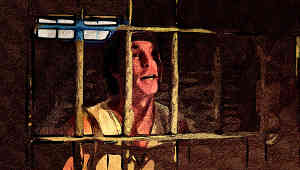
Caught Up In Our Mind, Unnecessary Thoughts - Giving Our Mind Space When we are caught up in our mind we may feel ungrounded, not live our life in the moment. Continuously thinking about our daily life isn't always necessary and we can postpone our thoughts, put a full stop, boundary around them. Being in our personal power, discarding & filtering out what's unnecessary, letting go of anything that restricts us, cleaning our mind of any clutter, accepting, observing ourself and our mind can help us be calm, coherent, rational, but also experience the unique peculiarities of us as human beings, our quirks, peculiarities, irrational, illogical side, "mad, crazy moments", "mental wobbles" - as Nikos Kazantzakis says "A man needs a little madness, or else... he never dares cut the rope and be free". Observing these aspects, alongside our continuous thought processes, any wasteful thoughts, ideas, opinions, beliefs, expectations - gives our mind space as we get out of the cage of our mind (see also Being & Doing - Dilemmas We May Hold). Our mind for some (see also Intrusive, Invasive Thoughts, Unhelpful Habitual Thinking Patterns, Unproductive, Negative Thoughts & Their Meanings) may be elsewhere, as if separate from our body and feelings. As our mind changes, other possibilities, perspectives arise - even our facial expressions can change as we change our thoughts (see also Mindfulness). Our unnecessary, repetitive or negative thoughts may also lead to wasteful, unnecessary, repetitive or negative actions. When our thoughts become repetitive, we can acknowledge them, put the brakes on them, letting any unnecessary thoughts go so we can save our energy for clear and constructive thinking when we need to alongside creating space and quiet time for contemplation, reflection. For some, our mind can seem like a sponge - absorbing everything around us. On the one hand, this can broaden our outlook, enrich ourself, keep us sharp & stimulate ideas. Yet squeezing out what we don't need to hold on to, can enliven us, bring us energy, enthusiasm, open the windows of our mind & concept of time, put us in touch with our thought-free self for moments (see also Sense Of Time, Caught Or Lost In Time, Daydreaming, Idleness, & Mindlessness) or create fresh space for fresh thoughts and thinking outside the box. The counselling can also explore not only our chaotic moments might mean for us, but also what else may be transforming in our life.
The mind is its own place, and in itself can make a heaven of hell, a hell of heaven.John Milton
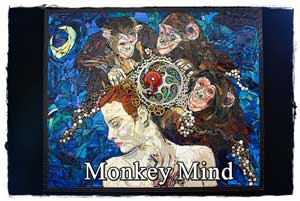
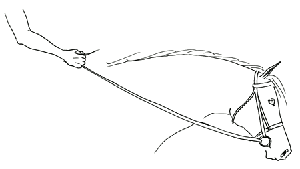
Wandering Mind, Monkey Mind We can jump around from one thing to the next as if our mind can be like that of a monkey, jumping from branch to branch, from thought to thought with rapid speed. This can affect our procrastination. Our mind may race ahead in a hyper energised state, where thoughts may also spin around like a hamster stuck in a wheel of thoughts (see also Our Inner World, Living In Our Head - Stuck In Our Head?). We may jump from task to task - see also Anxiety Overload, Overwhelment, Leading To Panic Attacks Or Anxiety Attacks. (This can be especially true if we have ADD/ADHD). Letting our mind set free to wander - giving our "monkey mind" time to run wild - full of inner chatter, playful or daydream at times can be exactly what we need to do and support our creativity. Allowing our mind to wander can lead to better ideas, solutions, inspirations, yet at times we may need to take the reins and focus our wandering mind, so it doesn't lead to anxiety, fatigue. Dependent on the circumstances and duration of our mind wondering, it may be important to harness our energy, think creatively and constructively soothe our monkey mind with affirming thoughts that we are calm, nurture our mind, be in touch with our purpose and to focus. Being present in the moment, silence, stillness, establish what gives us peace of mind may also support us.
The resting place of the mind is the heart. The only thing the mind hears all day is clanging bells and noise and argument,Elizabeth Gilbert
and all it wants is quietude. The only place the mind will ever find peace is inside the silence of the heart.
That's where you need to go.

Wandering Mind - Our Focus, Attention, Concentration Relaxed concentration can be important for those of us, that are overly focused concentrating, yet others may need to focus upon our concentration more. The counselling & psychotherapy can explore ways to stay focused, concentrate on the things that matter to us, knowing what we really need to do. Our concentration can be helped by the attitudes & interests we have, setting our intention. We all at times have a wandering mind, lost in thought, rendering us lost, stuck, confused, easily distracted, keeping busy for business sake, going off on tangents. And when we daydream, it can have benefits and distractions. When our mind wanders off to different locations (maybe leading to inspirations, fresh ideas and solutions, yet for others to anxiety, fatigue), it may help us to be aware of where it's gone, when it wanders off, and its duration. When necessary, bringing our mind back to the location we want it be in may be important. We may have a bit of a monkey mind, losing our focus in the process. Narrowing down our attention & focusing on what's important to us, what's good and positive - allowing the energy of our attention to flow, grow gives us the capacity to be more engaged with our will and passion in what we are doing. As if we are an archer, selecting our arrows, we can aim them towards our target, releasing them into the world. Our focus & attention ebbs & flows throughout the day - we can lose concentration & come back to it, affecting our productiveness. This could also be connected to our , sense of purpose, values or energy levels (where we place our attention is where we place our energy and energy flows where our attention goes supporting our focus - an aspect of Huna). Sometime our focus can jump around. When our focus is more focused, aligned to our own path & inner authority, we can become more resilient, productive, efficient, do things easier and our attention can seem effortless as if we are in the zone. Yet for some, being overly focused may limit our flexible thinking skills. For some it can help to imagine completing the task at hand in order to boost the possibility of completing what we need to complete. Others may be concentrating on the end result, which can become too dominant or overwhelming, rather than staying with the task in hand, being fully present, focused, flexible when we need to be. As our insights & consciousness expand (our field of awareness - that we are more conscious we are conscious), we can choose what to do with this & where to put our focused attention now, in touch with what matters to us, what we envision, so we are not caught somewhere between our past, present & future. The counselling can explore how we can set our mind free when we need to, when to focus on other occasions. In order to focus our attention & concentrate, it may be important & supportive for us to:
- Connect to our purpose
- Selectively collect our ideas, discarding ones of no use
- Relinquish unimportant things, so we are able to focus on what we need to focus on without unnecessary distractions, overanalysing things or sidetracking through multitasking
- Explore the weighting we put on things
- Be in touch with and following through our intention
- Challenge our beliefs, that background movements, noises are a distraction (see also Our Sensitivities - Pushing Each Other's Buttons, Counselling London), accepting them & letting our focus get stronger than what's happening around us
- Mobilise our resources, be in touch with our attention & focus aligning it with our passion, accessing our motivation, will, determined thoughts and our personal boundaries, so our attention doesn't easily wander, remains focused and our thoughts become less invasive.
- Remember when our mind wanders we can remind ourselves that we don't have to speak everything that is on our mind or be a slave to our thoughts.
- Stave off any boredom by paying attention to what we do with our time & focusing our attention again where we need to, thinking useful & constructive thoughts, building, maintaining supportive habits
- Give ourself attention (how we are with our self), paying attention to what we need to (including being in touch with our physical feelings), also paying attention by fully engaging in the world around us, choosing to put our attention where we want to
- Be aware that when our attention wavers, wanes or we become distracted, we need to refocus again with the right thoughts (see also Our Perceptions, How We See Ourself)
- Plant a seed of attention, germinating our interest by giving us space & time so our inner resources are readily available
- Decide whether to make a difficult task our first task, putting all our attention on it, if only for a few moments, or start of with an easy task, to help give us the momentum or confidence when tackling harder tasks
- Build up a more effortless endurance, so our focus & attention expands, lasts, helping us keep a sustainable, manageable pace
- Explore the weighting we put onto things
- Align our focus with our determination & discipline
- Persevere when we need to
- Give ourself short attention breaks, balancing high focused intense activities, with less intense activities
- Be still & silent at times
- Concentrate on the task at hand utilising our self-control
- Celebrate, acknowledge what we have achieved

Distractions, Distracting Our Mind Distractions are all around us - will always be there and how we respond to them is up to us. We may turn our focus & attention onto all sorts of external distractions or stimulus and getting distracted is a choice we make. In stressful situations we may turn to distractions, unhelpful habits or addictions, yet our problem may remain. A challenge for us may be to pay attention to what is happening around us and at the same time choose not to get distracted - focus, despite any distractions around us, so we don't procrastinate. It may be important for us to place our focus & attention where we need to without unhelpful distractions. How we distract ourselves may also be insightful. Sometimes we may prefer to get on and do things, despite distractions. On other occasions, we can get pulled to distraction - any distraction, thinking about anything other that where we need to concentrate our attention. Sometimes we can turn to distractions when anxious. Changing our old habits of unhelpfully distracting ourself may be challenging. We may let our mind run away with us, losing our self in the process. Our mind may race ahead, making lots of connections, taking us off track, focus on the wrong things. Being mindful and giving ourself time to experience whatever emotion we have, free of judgement, may promote our resilience, as we develop and think resilient thoughts. Ignoring the call to distraction inside our head, bringing our focus & attention back to what really matters & what we value, dedicating specific time to the task at hand, seeing things through may support us. We may want to find helpful ways to tune out of our unhelpful distractions. Some of us may want to utilise our distractions to our advantage, turning to healthy ones. Remaining energised, setting specific times to do tasks, may help us focus. Bringing our thoughts back towards our direction, even if we aren't exactly sure where this will take us, may be important. (Every now and again we can choose to let our mind run a little wild, yet we may also need to remind ourself we are the master of our mind, taking the reins and steer our mind in the direction we want, taming our wild horse mind - reigning it in with patience. Our internal boundaries can support us and our ability to concentrate, even around distractions and we may want to use the therapy to distinguish between our healthy & unhealthy distractions - tracking them.
Harnessing, Protecting Our Mental Energy Where we put our attention, intention determines how our mental energy flows. Acknowledging, yet choosing to bypass our urges at times without giving attention to whatever or whoever (especially energy draining people, emotional dramas) is seeking it, helps protect our mental energy, as does surrounding ourselves with supportive people who energise us.

Clearness, Clarity, How We Think - Clarifying, Filtering, Strengthening Our Thoughts, Beliefs We may want to understand our thought processes, clarify them, think more deeply yet freely, get to know how our mind works, explore our path of clearness. How we think affects our moods, inner world. Confused at times, we may want to revisit how we think, what our learnt beliefs are & what we tell ourselves, so we engage with thoughts that empower us. Sometimes we can make things real in our head. We may play out scenarios in our head - fortune telling, or go blank as if watching ourself from afar at other times. Being in our own integrity, clarifying our thoughts, filtering them, organising them, making distinctions between unreliable, false thoughts (e.g. our running commentary), false alarms (e.g. unnecessary worry about our thoughts, fears) and truth. This can influence our ability to reduce procrastination, make decisions, choices, decide what needs to change. (When confused or unsure about making a decision we can ask ourselves "Who am I?", "What is my purpose?", "What is my intention?". Connecting to our responses lead us towards clarity.) Our challenges, alongside our emotional reasoning and the relationship between our perceptions, attitude and approach can be explored in the counselling & psychotherapy. Diffusing any fear-based thoughts, noticing and naming unhelpful concrete thinking our false beliefs, thoughts - where they are coming from (e.g. a wounded or scared part of us can assist), so we don't automatically believe them. And strengthening the quality of our thinking, intention, beliefs, creatively thinking how we think may be important to us as may having a reality check on our thoughts, beliefs. For some our inner stability, moving our body, self-reflection, practising discernment, critical thinking, validating our range of feelings, supported by silence, stillness and balance, being in touch with our real passion and clear about our values, listening to our heart, inner wisdom, can help bring clarity, clear thinking, as we filter out, decant impurities. This transformation may be supported by spiritual exploration. When we are in touch with clearness (often felt differently in the body) we can express this integrity out in the world through what we say and do.
Expanding Our Mind Some may view our mind simply as a function of our complex brain activity, or separate from our nervous system, yet our nerve cells possess the ability to communicate between each other, influenced by our thoughts & feelings. Through our mind we are able to experience our relationships to these thoughts and feelings, including our subjective experiences, peak experiences and consciousness, providing us with the capacity to change. Our mind has a regulatory function where things can come together through space and time. Because the energy of our body, feelings & mind are interconnected alongside our interconnectedness with others as we are able to expand and connect with others.
Thinking Freely, Freeing Our Mind Freedom is a state of mind - what we create in our mind. How we see our mind determines what emerges from it (we may for example view it as a dungeon where we bury things, a spare room where we dump things, an allotment when we grow and nurture things, a temple and sacred space full of peace). And freeing our mind from things that make us feel trapped, not taking things personally may include letting go of unhelpful attitudes, limitations, blocks, perceptions, beliefs and being open to fresh ones. We may simply seek a sense of peace. At times, we may not want to focus on anything, maybe daydream, just to give ourself a moment of peace - letting go of whatever we hold on to (including things of our past, yesterday's way of thinking, negative attitudes), so we can let in good feelings, feel lighter, think outside the box, carry our freedom, allow for peak experiences, feel grounded and be ready to return to the task in hand.
Flexible Thinking, Cognitive Flexibility Especially when stressed, sometimes our thoughts and beliefs may be rigid, fixed as if cast in the tablets of stone as may our boundaries. Our brain is flexible. We may want to free our mind so it's flexible, open to new evidence, moving away from concrete thinking, limiting beliefs towards thinking freely with creative imagination, ideas and thoughts (see also Observing, Labelling, Naming Our Thoughts - Thoughtfulness). And this cognitive flexibility, choosing different new thoughts, can help us bend like a willow tree, yet not break, assist us to problem-solve, switch gears - moving from one task to another, view and understand different perspectives, learn new things. Choosing whether to have unloving thoughts carrying annoyance, anger, shame, hatred, or loving thoughts which make us feel good, aligned to our essence is an ongoing process and the counselling and psychotherapy can explore this further alongside the weighting we put on things, and how we respond to ambiguity. Balancing things, being focused enough, clear about what matters to us, our priorities and where we want to go, yet also be flexible enough to let go of what we think should happen, so we adapt and adjust along the way. In order to adapt and adjust, we may want to be flexible enough to let go of our "should", "shouldn't", "ought", "must", "never", "always" beliefs. We may want to balance being flexible, with being focused. (See also Counselling For Setting Boundaries - Flexible Boundaries, Adaptable Boundaries)
If you don't like something, change it; if you can't change it, change the way you think about it.Mary Engelbreit
Mentalising Mentalising (from attachment theory) is about our ability to be aware of mental states in ourselves and others which informs our actions. Mentalising includes both an emotional element relating to our ability to feel with the other and a cognitive component relating to recognising the effect of our and others' feelings, alongside each others' perspective, which helps inform our understanding. (Conflict can be part interpreted as a failure of mentalising.) Mentalisation has a self – reflective element occurring outside of our conscious awareness and is therefore often automatic. Mentalising is also about remaining grounded, so we manage, regulate our own strong emotions, feelings, responses through a self-respectful process of being present, curious, observing, listening, exploring , experiences (ours and others'), thoughts, beliefs, interpretations and how these influence actions, behaviours. Maintaining this mentalisation approach - understanding ourself and others with open heart enables us to communicate more effectively, checking with others what our understanding is. We may want to be inquisitive about the benefits of mentalising (with its early origins likely to be developed by receiving empathic responses to distress when younger), reflecting upon our state of mind - focusing our attention on the full depth of our experience (including what we're feeling and why), allowing our thinking space to grow, opening the space for unconscious dimensions, making sense of the contents of our experiences, our history and mental states, having a reflective style, so we are able to recognise and stand back from our feelings - not act them out and generate multiple perspectives and experiences in light of our mentalising, rather than being trapped in the reality of one view.
Mindfulness & Mentalising The therapy may promote the experience of mindfulness before any mentalising. Mindfulness, mindful awareness - connected to creating space to reflect makes room for our experiences, directing attention to our moment by moment process of experiencing, while mentalising make sense of our experiences. Both can bring awareness of awareness to thinking about thinking, help us integrate (recognise our experiences) and regulate our experiences.
The contents of the mental stream are not as important as the consciousness that knows them.Mark Epstein
Mindfulness Balancing the value of mindlessness and daydreaming with mindfulness, so they are not exclusive, may matter to us. Mindfulness does not have any particular goal or outcome. It is an approach to life that facilitates us to effectively relate to our experiences, helping us manage our life and its challenges through our psychological ability to compassionately change our relationship with our thought by stepping back, witnessing ourself with care, compassion and wisdom and what is happening around us. Mindfulness can be formal or informal, usually requiring us to remove our self from activities as we train the mind to get somewhere else (including envisioning our future). Mindfulness - experiencing our aliveness and being fully in the moment, can be encountered any time, anywhere. In our daily living it may help us to be less reactive emotionally and reduce rumination as we acknowledge the things we can't change or control through full acceptance. Paying attention on purpose to what we are experiencing - often the simple things, can open up the space for us and it may also help to loosen up, "seize the day", be spontaneous, have a range of "now's".) Mindfulness has origins in Buddhism with its emphasis on impermanence and uncertainty yet in our culture it tends to focus on stress reduction. It is a simple human way of paying attention on purpose - being intentionally aware to what's happening moment by moment (whether we are walking, talking, eating) without judgement, accepting what is, so we have a greater connection both internally by taking care of ourself, exploring and understanding the interconnection of our body, feelings and mind, mobilising our own resources to help us thrive and with others outwardly distinguishing between what happens to us and what happens in us. This includes paying attention to our immediate experience, our internal presence, noticing our sensations (see also Interoception - Interpreting Our Body Signals), thoughts and feelings - monitoring them as they form in our mind (see also Body, Feelings, Mind, Epigenetics, Environmental Connection, Self-Regulation), being conscious of our experience, aware of moving between "doing and being". Being in touch with the ebb and flow of the each moment, mindfulness, can also be described as full, compassionate and non-judgemental awareness of each present moment (seeing what we are able to see, experiencing what we are able to experience about the nature of reality - gaining any insights) - concentrating attention on the breadth of our experiences in the here and now and making sense of them - being present to and aware of our experience while we are experiencing it without judgement (see also Contemplation, Creating Space & Quiet Time, Taking Pauses - Self-Awareness, Observation & Self-Reflection, Including Journalling, Studying). As a way of abandoning ourself some of us can unhelpfully turn to mindfulness to get rid of feelings rather than learn from them and this can also be experienced as a spiritual bypass (see also Frozen In Time, Locked, Trapped, Fixated Only In The Present Moment, Accompanying Ourselves "In The Moment" With Awareness, Presence, Imagination, Reflection). Mindfulness is purposefully bringing and directing our attention into our body and tuning into our senses - utilising them, being centred, grounded and anchored in our self. In mindfulness we can use our breath to calm ourself (including when others are in distress), compassionately manage our feelings and emotions, reflect on our attitude and behaviour, so we can ground ourself, remain calm in crisis, aware how our mood and presence influences others. (Observing our mind when it wanders, the brain may not like being still and just focusing on our breath.) Through practising mindfulness, this connects to our conscience, supports our resilience and we are able to consciously step out of situations, evaluate things, manage our body language, aiming to have a reassuring and healing presence, guiding our own emotions towards kindness, patience, forgiveness, being non-judgemental, where we respect other people personal space and boundaries. Some of us may practice mindfulness yet be concerned that we are not very compassionate to ourself or others, which can be explored in the therapy. We can bring our mindfulness practice to our eating, sounds, thoughts (being mindful not "mindfull"), focusing on what internal or external to our body, being mindful of our breathing. Mindfulness can connect us to our free spirit, support our spiritual growth and is not meditation, yet can be a meditative experience and these experiences are not therapy but can be experienced as therapeutic and help us grow spiritually.
And all is always now.T.S.Eliot
Meditation Meditation - a spiritual practice of growth, is uncomplicated and was not invented by any particular religion. Meditation can raise our frequency, help us experience peace, stillness. There are many forms of meditation - some of which may suit us more than others, and when in deep meditation we may become aware of our thoughts, emotions, that we - our Self - are not the body, that we exist outside of the body as consciousness. As a normal and natural human behaviour, sometimes we may meditate and not realise we are doing it. It starts with our instincts to be on our own, be watchful and calm. Meditation gives ourself a mental break to get to know ourself by relaxing, being with ourself, spending time with our thoughts, accepting who we are - not doing anything, just being "me" with "me". Meditation can for some simply be sitting quietly, scanning our life, contemplating this. It enables our mind and feelings to be calm, contemplate, enquire and explore. If for example we feel irritated, some may meditate, breathing softly, thinking good thoughts about others and are patient. A further meditation experience may enable us to enquire and reflect upon who is this me, what is this part of me observing and guiding this, what is this consciousness. Meditation can ground us inside and expands us through consciousness, self-compassion. Some people benefit from meditating in nature, others only in a sacred space, simply pausing, whereas others utilise grounding our Self in the present moment through breathing, movement, sounds, chanting, sacred mantras, artefacts, candles, our rituals. Meditation comes easy for some, whereas for some it requires patience, more focus, self-management. (Each meditation is different, unique and it may not be helpful to compare each meditation experience, but instead have gratitude for each one.) We may achieve calmness through meditation, yet this can disappear when our intent shifts to wanting to control. If we are coming from our wounded or needy self we may use meditation, like an addiction, to "bliss" out or wants to rid ourselves of feelings rather than learn from them (see also Fleeing Towards Spiritual Enlightenment, Religious Escapism - Spiritual Bypass, Spiritual Smugness) and for those of us carrying trauma it may not always be helpful to meditate. If our wounded self is meditating with an agenda in mind, that we should do things right and meditate enough, we are trying to have control over the outcome of things. Yet if we stay open to love and truth, that our spiritual guidance has our highest good at heart, this highest frequency can have a higher impact. Meditation means simply putting our body at ease, being calm and quiet, with a watchful mind, staying in this altered state as if our psyche is in relationship with the cosmos for a while. We don't have to close our mind down. The chatter in our mind may be useful. It can help to compassionately observe this, develop patience. Different meditation traditions may give us different experiences (and some assert their way is the best or only way). Common themes may include being at ease, conscious, awake, and watchful, experiencing and witnessing inner sensations and everything with compassion and care, feeling connected to the beautiful mystery of existence. Meditation may also prompt us to explore meaning. Meditation transcends the limits of the ego, helps us unravel layers of conditioning and illusions that obscure our true selves. It can bring about profound personal change, transforming how we connect with energy, the wonder of life and the wider world. It supports our resilience. The quality of meditation can also be enhanced when we are not meditating, and our heart, mind and emotions are in harmony, energetically aligned - heart coherence. Mindfulness can be a further way to meditate. Some meditate on a seed thought, others through reflective contemplation. Some of us may also pray (which has been described by some as talking to god, whereas meditation is about listening to god). Rather than meditating, others may have discovered quietening, calming their minds or reducing their overthinking through connecting to our body through walking, yoga or qigong, just daydreaming, having a repetitive task, e.g. DIY, knitting, sewing, counting in threes from 100 backwards, dancing or listening to relaxing music, simply being in the moment, in touch with our free spirit (see also Navigating Between Being & Doing).
Feeding Our Mind, Healthy Mind The mind is where everything starts and revolves around. So we can choose to worry ourselves, ruminate, about the latest terrorist incident, train crash that has just happened somewhere in the world, or we can nurture our mind with thoughts, images that nourish us. Whatever our mind is experiencing in each moment is a result of what we put into our mind. We can elevate and train us to put something calming, elevating, joyful in our minds. It is said we are what we think and the therapy can be a space to explore what we are feeding our mind with what we imagine, create and what constitutes a healthy mind. Keeping our mind relaxed, calm, clear may also support us. How we treat our mind determines what emerges from it, therefore engaging with thoughts that empower us will support us. We may treat our mind as a spare room, where we dump things, a dungeon where we store things, or allotment where we weed out unwanted thoughts, choose to nurture and grow things, viewing our mind as a temple, sacred space, nourished with peace.
Some people feel the rain. Others just get wet.Roger Miller
Nurturing Our Mind When distracting or negative thoughts interrupt our focus, concentration, intrude upon us, some people are helped by simply acknowledging these thoughts (maybe making a note of them, so we can give them attention later on), so we can focus on what we need to focus on. Replacing these with creative positive thoughts, feelings, images, memories may support us when we also include envisioning our desired future. Yet we may also need to compassionately manage endings, loss, grief. We may want to get to know our mind - befriending it, listening to it, what helps, what doesn't, what facilitate our mind's contentment. Analogous to physical feelings - keeping our mind vibrant, energised (for where we put our attention, our energy flows), we may want to avoid the heaviness of thinking too much, especially if the weight of our thoughts become pessimistic, sarcastic, cynical, draining, negative. And this negativity may be connected to thinking from the past, struggling to accept uncertainty or the unknown. Creating a different space, so we can think about our desire, future, exercising our mind, stimulating it with curiosity, creative ideas, imagination may also help nurture our mind alongside resting it, taking pauses, digesting what we take in. Rather than coming from our wounded thoughts, we may want to come from our loving adult self, feeding, nourishing our higher mind with healthy, light, fresh positive thoughts - ones that uplift, rejuvenate us, supporting our vitality.

Wondering With Curiosity & Interest Curiosity is built into life - how we explore the world outside us and our inner world, our essence, how we think and feel about ourselves, how we identify with who we are our relationships. Some of us may be caught in the same patterns of thinking, feeling, knowing all the answers as if we have forsaken our questioning mind. We may have become cynical or lost our sense of curiosity somewhere back in childhood, or no longer be experimental. Pausing, being exploratory, curious, inquisitive, taking time to ask questions, being interested - investigating possibilities, stepping away from making assumptions, noticing, exploring things and acting upon our curiosity, holding our sense of wonder, can give us pleasure, allow us to grow & develop, share it with others. And when fearful, depressed (or believing we have everything figured out), the potential for any surprise, spontaneity can diminish. And that soft sense of wondering (which has been described as a spiritual characteristic) - enquiring about life's big questions, the cosmos, what love is, who we are, being comfortable with the unknown and mystery and purpose, can be connected to the innocence of our childhood - our child within. (As Johnny Nash once sang, "There are more questions than answers".) Rediscovering & allowing ourselves to be curious now may be important and we may want to explore what it would be like to take the longer way home for a change. And when in our explorer mindset, it expands our thinking, growth and resilience as we consider other perspectives. We can turn our curiosity inwards - mentalise, tuning into our sense of feelings, memories & reflection, and also outwards, through our interactions. Being curious about others also enhances our empathy and emotional intelligence. Being enquiring, inquisitive, learning to live with uncertainty, embrace the unknown, mysteries of life, adapt can open us up, allowing us, our minds to expand. It can also allow our own unorthodox or personal thoughts to emerge. When we are curious, open to exploration as if we are a tourist, it prompts us to keep learning - our mind stimulated and enriched, and we discover more about us (and maybe what was previously unconscious) and others, even if we don't share the same values. As our curiosity manifests, our consciousness evolves. We may become spiritually curious. Our curiosity stems from our open mind - enabling our questions to become our quest and can be experienced as life affirming, enriching our relationship with the world, the fuel for our imagination, creativity, potential & search for meaning. Exploring the purpose behind our curiosity may support us. Closely linked to our motivation & willingness to learn, lives our curiosity. Counselling & psychotherapy may help foster our curiosity - a quality of love, wondering where it may be taking us, how it affects our sense of reality. We may want to ask questions of ourselves (e.g. "Why we are feeling this way?", "What if we view this from a different perspective?"), of life (e.g. "What possibilities exist here?", "What can I learn from this?"), of people (e.g. "How do they feel about this?", "What do they think is the best solution?")
I have no particular talent. I am merely extremely inquisitive.Albert Einstein
Our Ideas - Responding To What & How We Think Ideas in our mind can be contradictory at times. Our ideas can change our view of reality. We can reframe ideas. If we are overflowing with ideas, we sometimes need to filter, or contain them, give them a boundary, and then discard ones of little use. Being creative, curious, have fresh ideas, can stimulate us, yet if not made them into form, put into action, we may become frustrated. Capturing our ideas, allowing them to percolate, envisioning a positive outcome, builds momentum, helps motivate us into action, so we do something - taking the idea forward. (see also Accessing Motivation, Taking Loving Action, Acting From Our Personal Will, Heart).
If it's out of your hands, it deserves freedom from your mind too.Ivan Nuru

Utilising Our Mind - Controlling Our Thoughts Affecting Our Actions If we are uncomfortable with the way we see things, we may want to experiment with alternative approaches to thinking differently and this can affect how we feel, our behaviour, which influences different outcomes (especially if we are prone to putting our life on hold or procrastinating, sabotaging things). Whilst we can't control all what happens out there in the world, we can control our own actions, have choice in finding, having and following our "No" or "Yes". Our actions can be supported by clarifying our goals, plans, utilising our will. Envisioning our future, utilising our mind as a tool, we may have more control over our thoughts than we may think. Wherever our mind goes, we go, so we may want to practise checking and choosing where it goes, gently bringing it back to the here and now, directing it towards inspiring places. The first thought that enters our mind may be hard to control, yet our response to this first thought (and choosing our second thought), is also under our control. As we create our thoughts so too can we guide & steer them to where we want. Controlling our thoughts, so they don't control us, may be a challenge. Like a radio, we may want to consider what thoughts we want to hear, listen to, transmit - select, carry our thoughts, intentions, desires on a wavelength of our choosing - whether we want them in the foreground, background, whether we want to fine-tune or turn them off, so we can also create space, quiet time, take pauses, observe and reflect. Giving ourself a mental break to reflect may matter to us. Others may prefer to view our mind as if a garden, visualising our thoughts as seeds, doing some regular mind-gardening - choosing what to grow, pruning, weeding out negative thoughts - maybe fears, doubts, worries, limiting beliefs, attitudes, so we can cultivate our mind with patience, gratitude, love, carefully nurture and grow seed thoughts (for each outcome begins with a seed thought, so it may help to choose these with care and intention - planting the best seeds of our mind, so the yield will be the best and our mind can grow, thrive). We can reach for the best feeling thought, choose elevated thoughts (see also Good Feelings, Elevated Moods, Elevated Emotions, Elevated States) plant positive seed thoughts - maybe hope, trust, peace tending to them in order to cultivate our mind, helping us to flourish, take positive action.
Everything has been figured out, except how to live.Jean-Paul Sartre
Peace cannot be kept by force; it can only be achieved by understanding.Albert Einstein
Peace Of Mind, Stilling Our Mind, Contentment, Inner Peace, Internal Calmness - What May Not Help We may be searching for inner peace, yet we can't give what we don't have so if we want peace in the world we need to be at peace. Contentment and peace of mind is not a bland acceptance of life and doesn't mean we have to lose our drive, have no goals, just be overly optimistic. Peace of mind, feeling at ease with ourself may elude us and it may point to the Chinese proverb "Tension is who you think you should be; relaxation is who you are". Our background thoughts influence our peace of mind in negative and positive ways. What gives us peace of mind varies from person to person, yet there may be some common denominators. Stilling our busy mind - from the thoughts that keep coming in and having a good night sleep, may be important for us, as may not always reacting to external stimulus (e.g. always having to turn to some form of technology as if we have no other options). Buying things, finding the perfect partner, wanting to change others, may be other ways to seek peace of mind outside of ourself. Calmness doesn't have to mean being perfectly serene. We may pray, meditate to find peace, yet peace of mind may be elusive, which may be linked to trying to bypass our core painful feelings or struggling to manage & regulate them, embrace suffering & love, accepting of how things are. Some of us may attach our worth to success, failure (maybe overwhelmed by thoughts, feelings). Procrastinating, we may have certain worries, expectations, fears, e.g. fear of love, fear of death, dying, which stops us feeling calm, being at peace, compounded by any existential concerns. We may be seeking peace of mind, contentment (acceptance), want to feel relaxed, yet be self-critical or worry a lot about others' actions or how they feel about us, getting anxious - often trying to keep busy or despairing if we find stillness, silence difficult (see also Afraid Of Finding Out More About Ourself). We may hit pockets of existential loneliness. As if serenity is always some way off, "It will be all right when..." may be an unhelpful way of experiencing peace of mind. Peace of mind is in the moment comes from our core self - our natural state of being and nothing, no one can make us peaceless, unless we allow them to.
There is no joy but calm.Alfred Tennyson

Peace Of Mind, Stilling Our Mind, Contentment, Inner Peace, Internal Calmness - What May Help We may ask ourselves what brings inner peace. Being internally calm, cultivating a peaceful mind and heart may matter to us - peace in who we are, with who we are, how we are. (There is a Chinese proverb, suggesting "Tension is who you think you should be. Relaxation is who you are".) Accepting our helplessness over others, events, that disturbances, issues in our life are inevitable, making peace with our current situation, may counter-intuitively give us peace of mind, help us not get so caught up in life's dramas or take things so personally. We cannot have peace of mind unless we accept ourselves, have acceptance of what is. Discontented, we may start to change things yet remain discontented inside. Being content (without being complacent) - happy with where we are, what we have, who we are, that we are enough, being more carefree may matter to us, yet at the same time still having a drive to accomplish things. And from this contented place we can begin to make changes. Our body, feelings, mind are interconnected and we may need to pay attention with a consoling perspective to these aspects of us being in balance. When connected to our core, our body is relaxed, enhanced by using our breathing, so too may our mind be and vice versa. Giving our mind some time out, allowing ourselves to experience a positive quality of daydreaming as if watching our thoughts go by, like leaves floating along a stream can help us. Allowing our mind to be content, take a break, to slip momentarily into a neutral, relaxed mode between tasks (while at the same time acknowledging our thoughts, perceptions, attitudes, noting what needs attention later) can bring our motion to stillness, bringing us rest, temporary solace, peace of mind & balance. So, if we feel inner peace, we can allow it to flow into the world, especially in our interactions, when we are aligned to inner peace, and we naturally give this to others. And our mind can also be a place of calm waters to renew things. Experiencing a sense of passionate calm may be important to us, utilising our own calming strategies, that work for us, e.g. breathing, meditation, etc. Taking this break, expanding the gap, can empower us to be more energised, make clearer decisions, and move forward towards our right direction and to take action. On a practical level, simplifying things, seeing things through, completing things, finishing our tasks (and maybe mono-tasking - doing one thing at a time), being organised, trustworthy, enjoying our accomplishments, letting our thoughts out the back door from time to time may also help bring us peace of mind, as can soothing, loving ourselves and others. Being authentic, in our strong vulnerability, contacting our sense of softness, joy, playfulness, laughter, humour, serenity, the power of surrender, being patient & loving, the positive qualities of daydreaming may support our peace of mind. Listening to our heart, letting go of what we need to let go of, relinquish, beyond the limits of our personality may support our peace of mind, as may valuing our time alone. Every situation, whether good or bad, is an opportunity to become more compassionate, loving, conscious, to learn, grow and also serve others. Opening our heart, letting go of what we need to let go of, including what the future should be like, our need to be in control, being in touch with our vitality, breathing, stable in our own ground, internal sense of worth, balancing all the different aspects of us can support our peace of mind. Being in the moment, in touch with what relaxes us, our sense of forgiveness, listening to our wisdom, inner voice, trusting our self, our innateness, life, being honest with ourselves, experiencing silence and stillness, supported by stabilising our mind, may further facilitate our peace of mind. This allows a sense of inner calmness, inner peace, harmony, enabling time to reflect, observe things, so we quieten the mind and may lead to inner tranquillity, feeling more at ease and free from what was restricting us with a sense of more space, being in the moment, being in our being, maybe an experience of interconnectedness or spiritual connection, wellbeing. Many of us find peace in nature, or a sense of life being greater than ourselves. And peace is always with us - our natural nature, as is connecting with nature. Reminding ourselves we are peace, no matter what's happening in our life, can support our inner peace. (See also Psychological Wellbeing, Psychological Health, Psychological Resilience, Mental Wellbeing, Mental Resilience)
Make it easy on yourself.Burt Bacharach
War & Peace In Our Head & Out There In The World What are we fighting over, is it about perceptions? "I want this kind of political and economic system, this type of government, this is my land and I want it this way." We may oppose war as a means of settling disputes yet want to take action in this field. "Peace is a process to engage in, not a goal to be reached" wrote Sidney Bailey, a Quaker. (The Quakers came up with a description of non-violence: "Non-violence is a way of actively confronting injustice. Not doing nothing, not responding violently, not running away; but struggling creatively to transform the situation. It's about doing conflict better; bringing about the change without doing harm.") To different degrees, we experience our own inner/outer conflict each day (see also External, Social, Environmental Factors Of Loneliness - Relationship With Our Environment & Impact Upon Ourself). How much of going to war is connected to war in our own head when our hearts are closed? (John Woolman wrote "Search out whatever in your own way of life may contain the seeds of war".) What are the alternatives to violence at personal and international levels? Conflicts make the world go round, are inevitable and need addressing. How we handle them without being violent takes much skill. There are many just causes in the world, yet are there just wars? How do we, society prevent, respond to wars, the arms industry? Do we want to go along with governments who claim they are helping a cause by bombing? If we value the sanctity of human life with no exceptions, or are religious or spiritual, that there is a soul in everyone, is it our duty to find solutions that don't involve justifying wars, murders? Have we failed as human beings to perpetuate the myth that conflict must be violent? What does love want of us? What would happen if we had peace of mind? What is the role of conflict transformation? It was Einstein who acknowledged, "Peace cannot be kept by force, it can only be achieved by understanding" and this can also apply our own inner wars in our head.
Stand still in that power, which brings peace.George Fox
Specific Questions About Counselling For Positive Thinking We may have some questions about our positive thoughts or negative thoughts, positive attitude and also about being curious and confused, confusion and curiosity, e.g.:
- Having a negative attitude - what about my negative thoughts?
- Negative thinking patterns - how can I stop negative thinking?
- How to stop overthinking? What can I do about my over thinking?
- What is magical thinking?
- How can I respond to my internal dialogue?
- I have a short attention span - what can I do?
- How can I increase my attention span?
- How can I change my self-beliefs, give me some positive self talk?
- How can I change my all or nothing thinking, black and white thinking?
- How can I be not so over-analytical?
- Is it OK to change my mind?
- I am forever changing my mind, is this wise?
- Being curious - how can I benefit from my curiosity?
- How to be positive and how to be more positive?
- How to think positively - what is positive thinking?
- How to think positive - how can I have positive thoughts, positive attitude?
- Being positive - how to stay positive?
- What is inner peace?
- How can I find inner peace?
FAQs about Counselling for Thoughts & Beliefs in my London practice based in Kings Cross, Camden:
- What is the frequency of counselling in London, Kings Cross?
- How many counselling in London sessions do I need?
- How much does counselling London cost?
- Must I visit your London counselling practice in Camden or do you offer Zoom or Teams counselling, online counselling?
- What are the advantages and disadvantages of offering online counselling, Zoom or Teams counselling or in-person counselling in London, Camden, Kings Cross
- Do you only offer counselling in London, Camden or Kings Cross?
- What times do you offer counselling in London, Kings Cross or Camden?
- How do I contact a counsellor in London, Camden, or near Kings Cross?
- How effective is counselling in London, Kings Cross, Camden?
- What can I expect from the initial session of counselling London?
- What to expect from the other counselling London sessions?
- What is the typical duration of the London counselling services in Camden, Kings Cross
- Is counselling effective in finding inner peace?
- How can I have inner peace?
- How can I feel inner peace?
